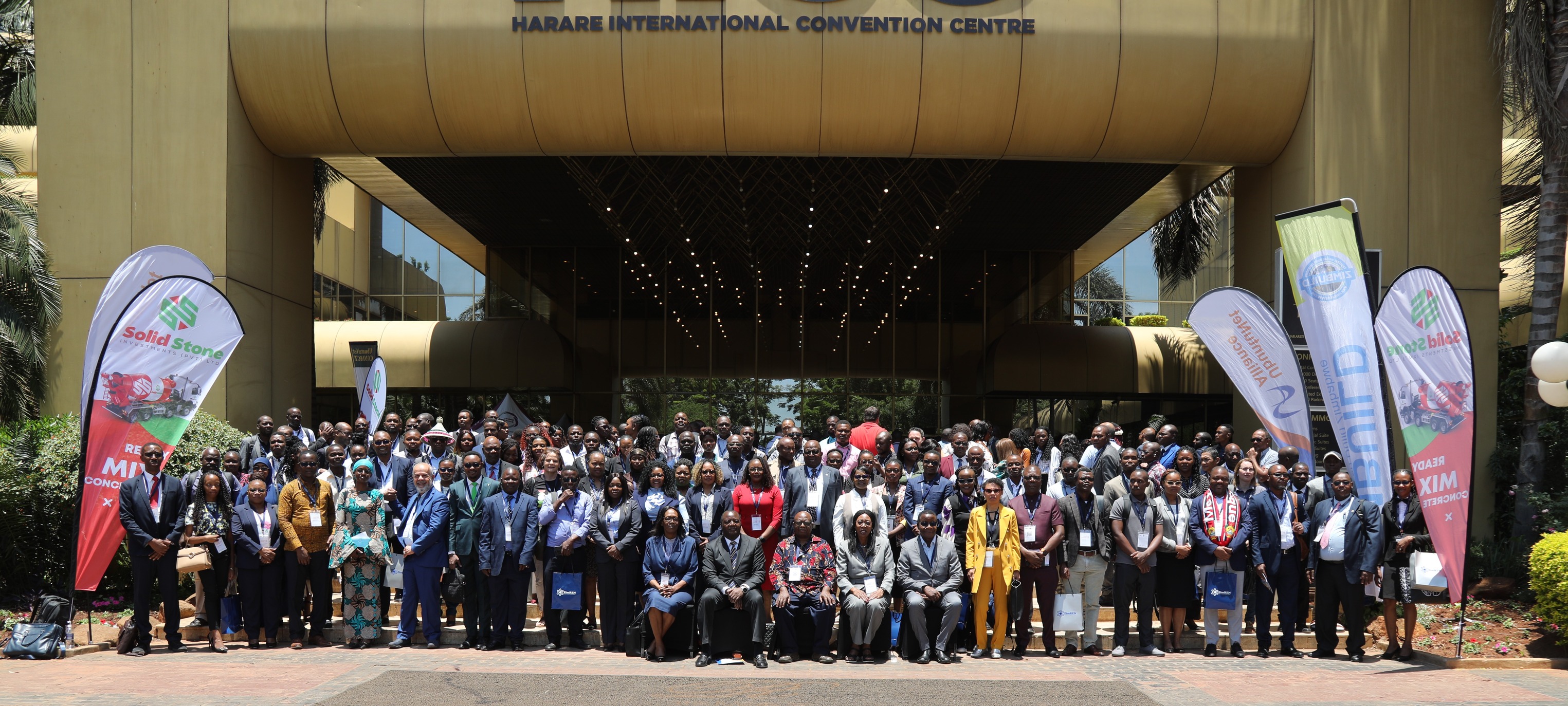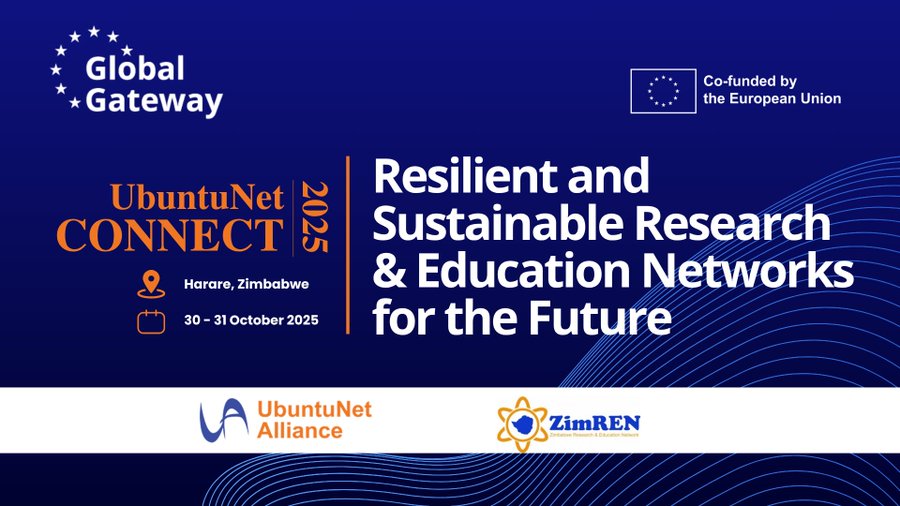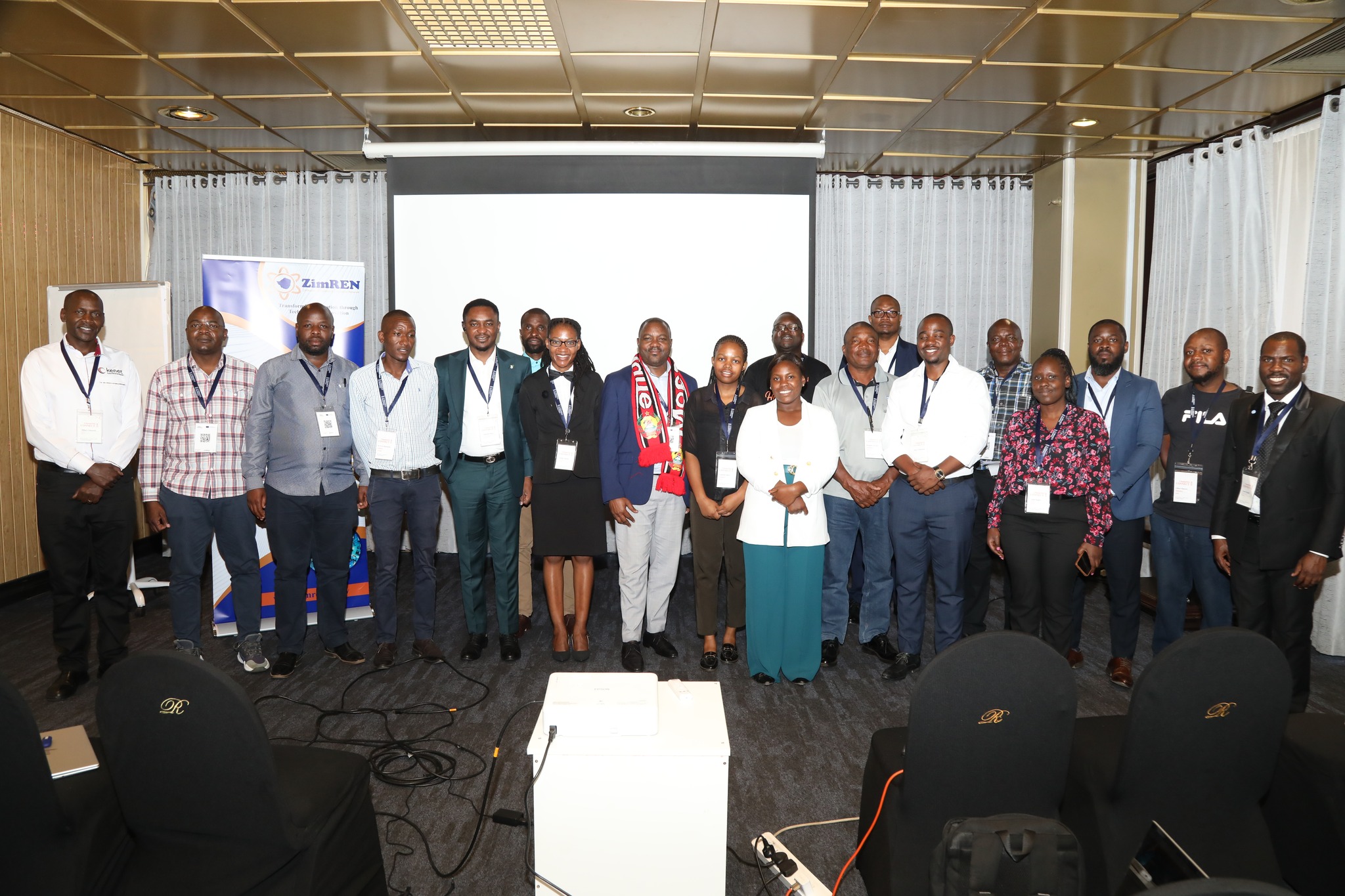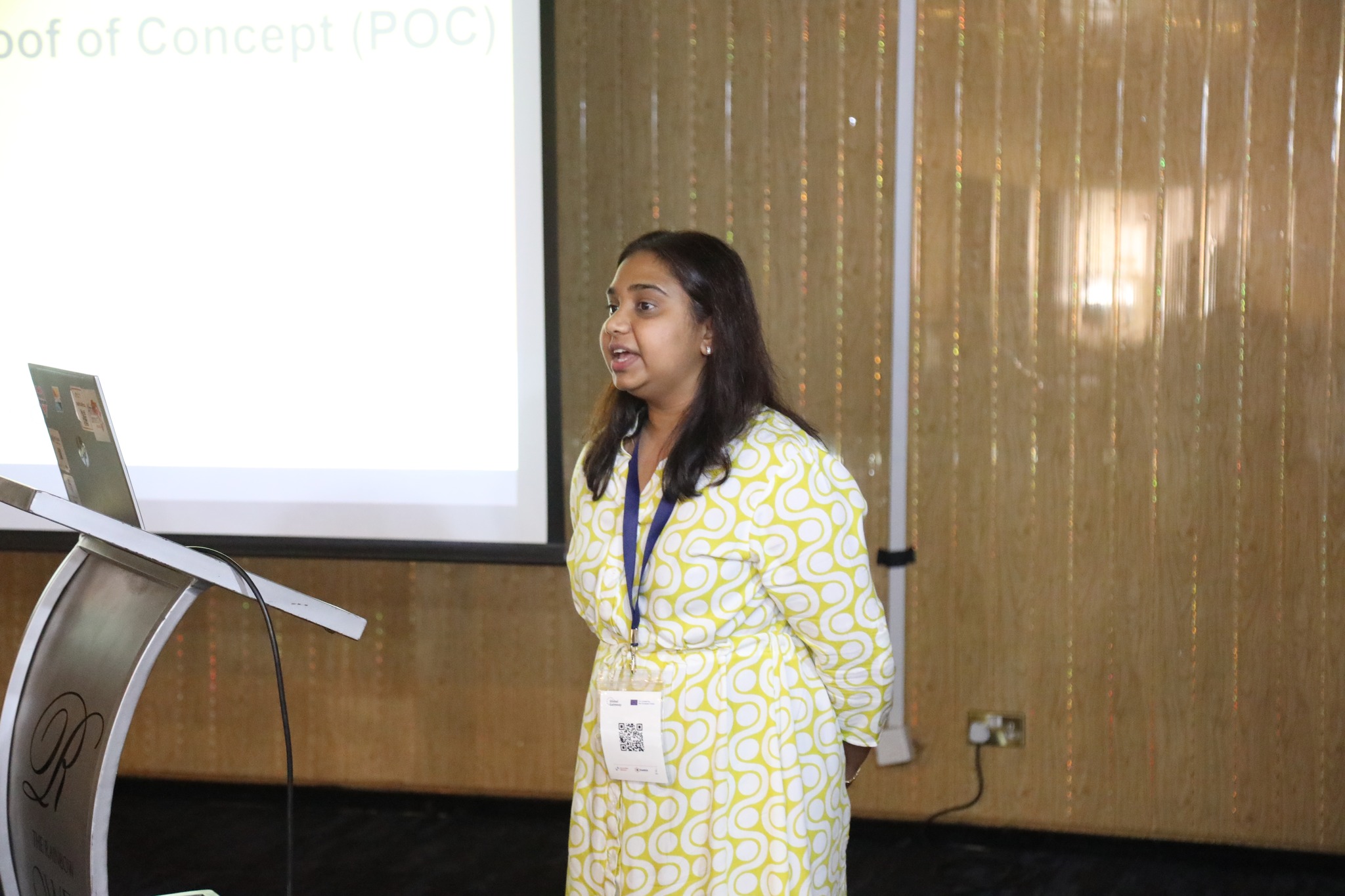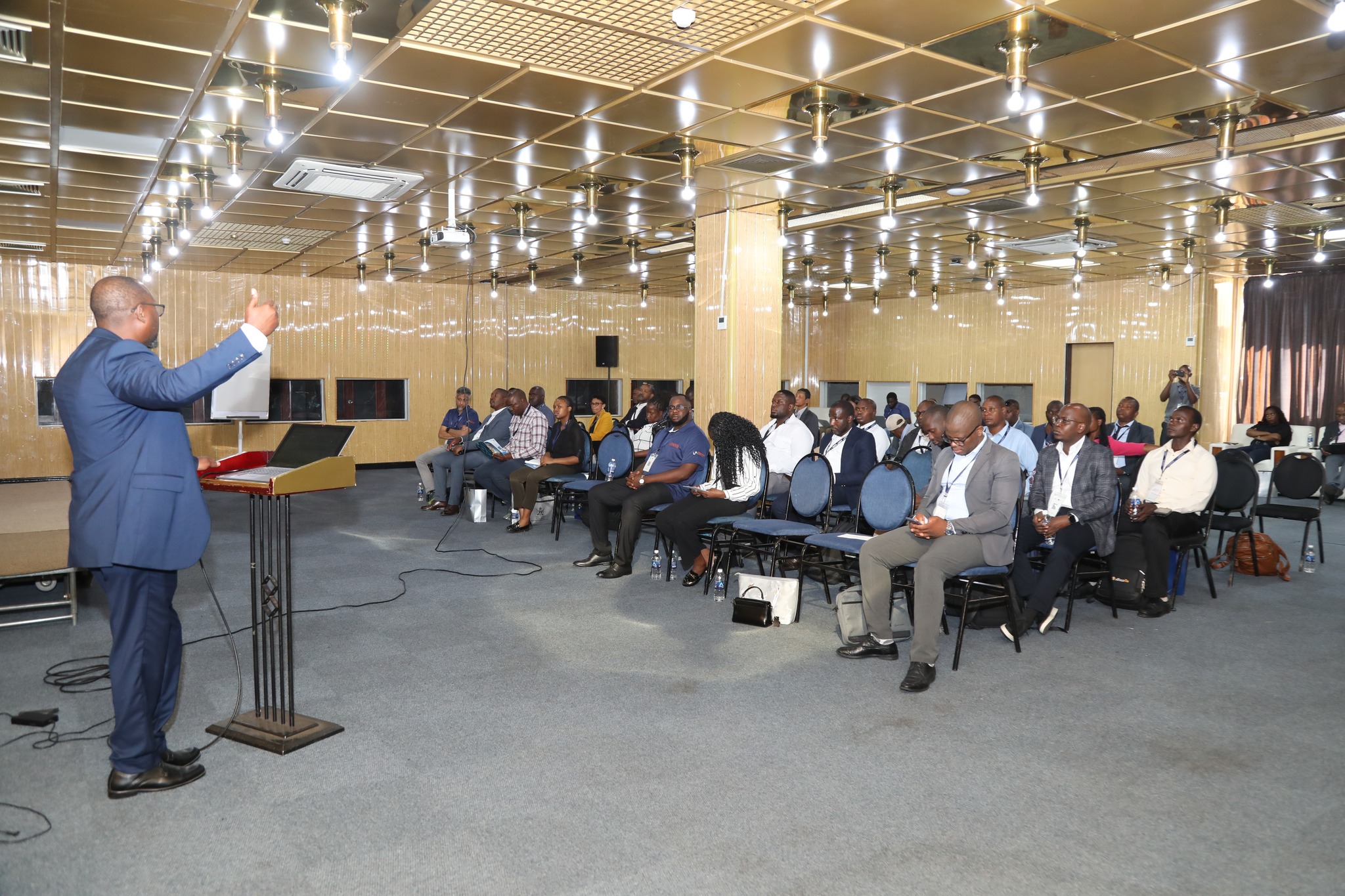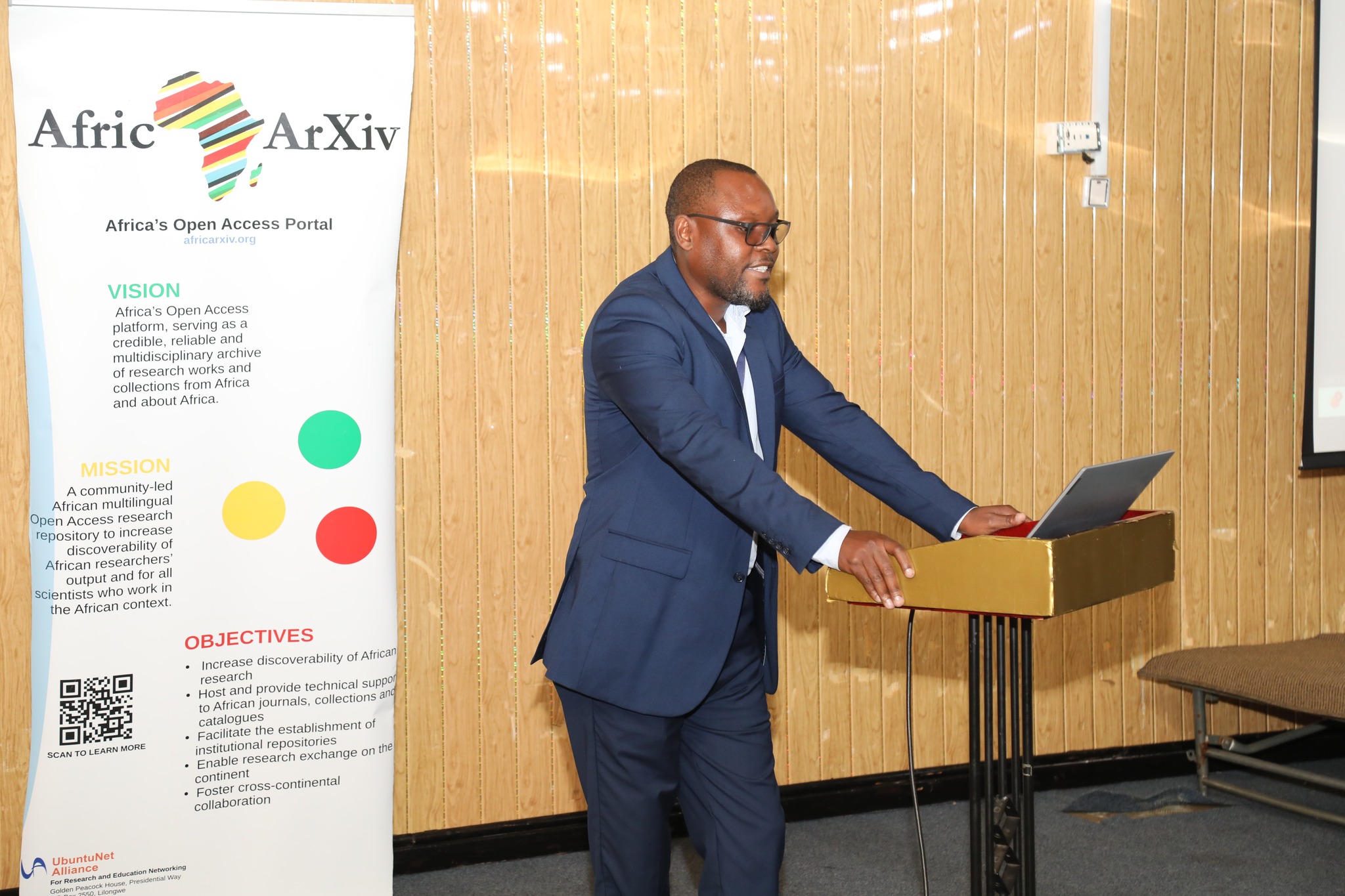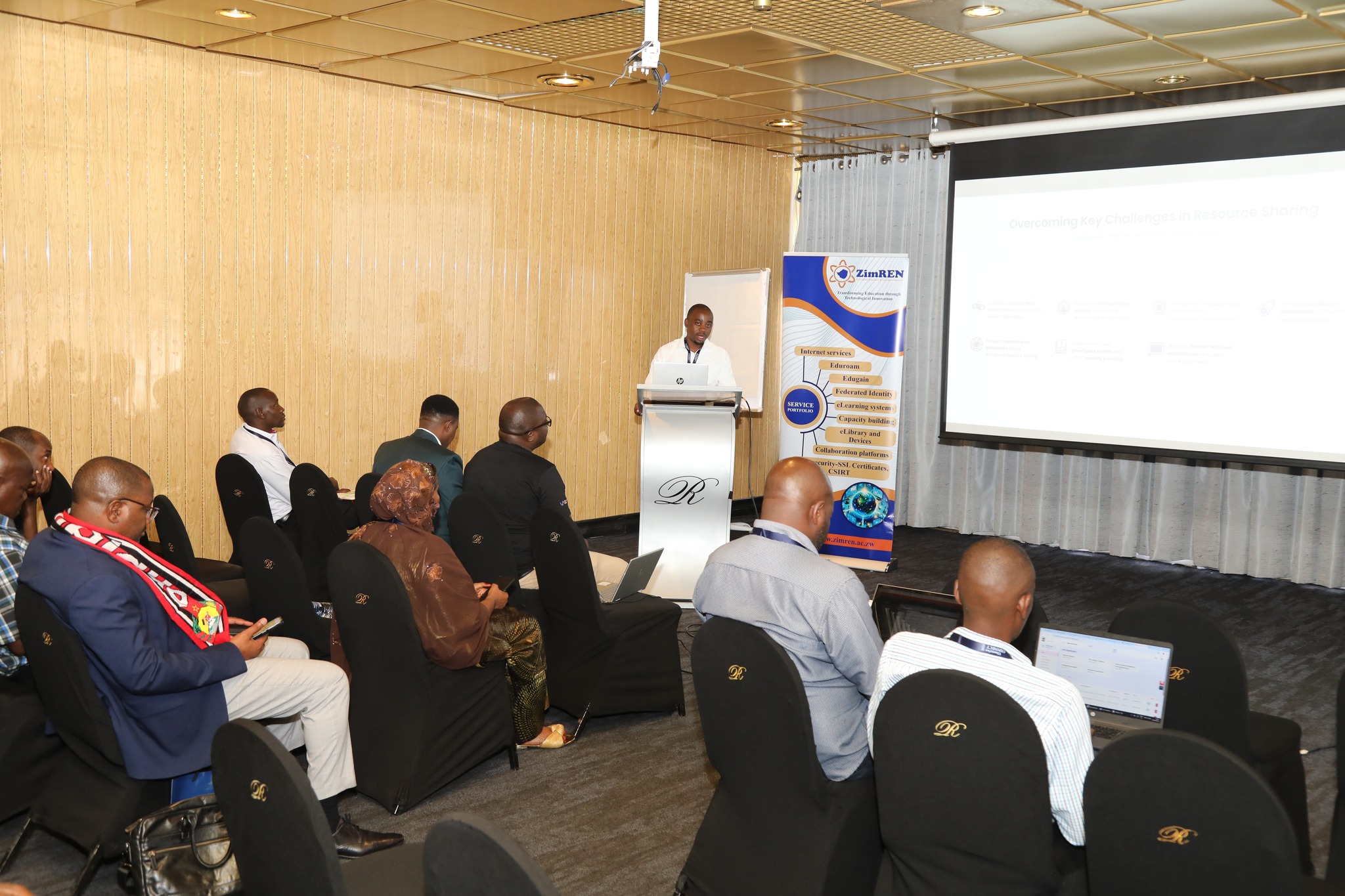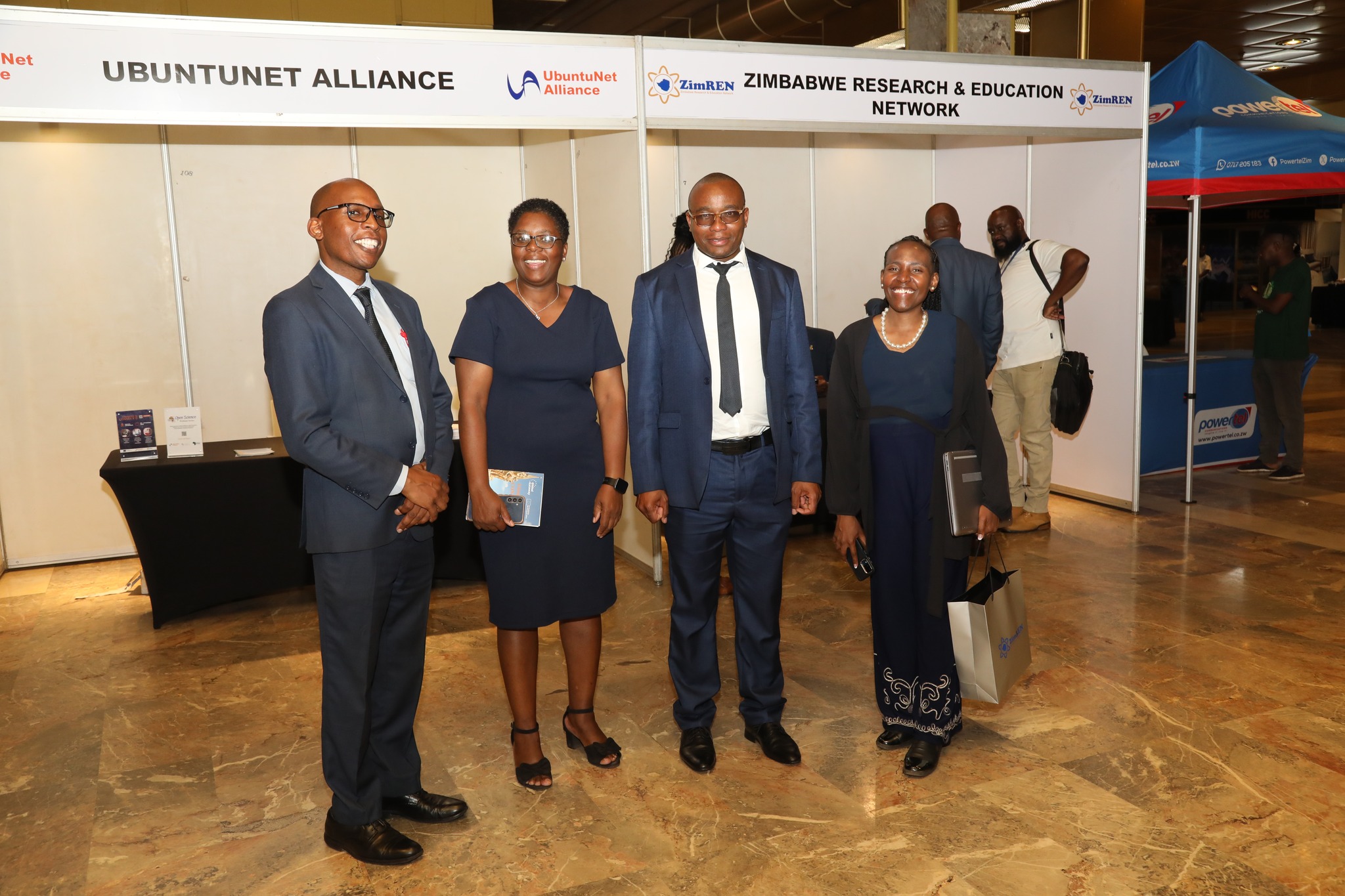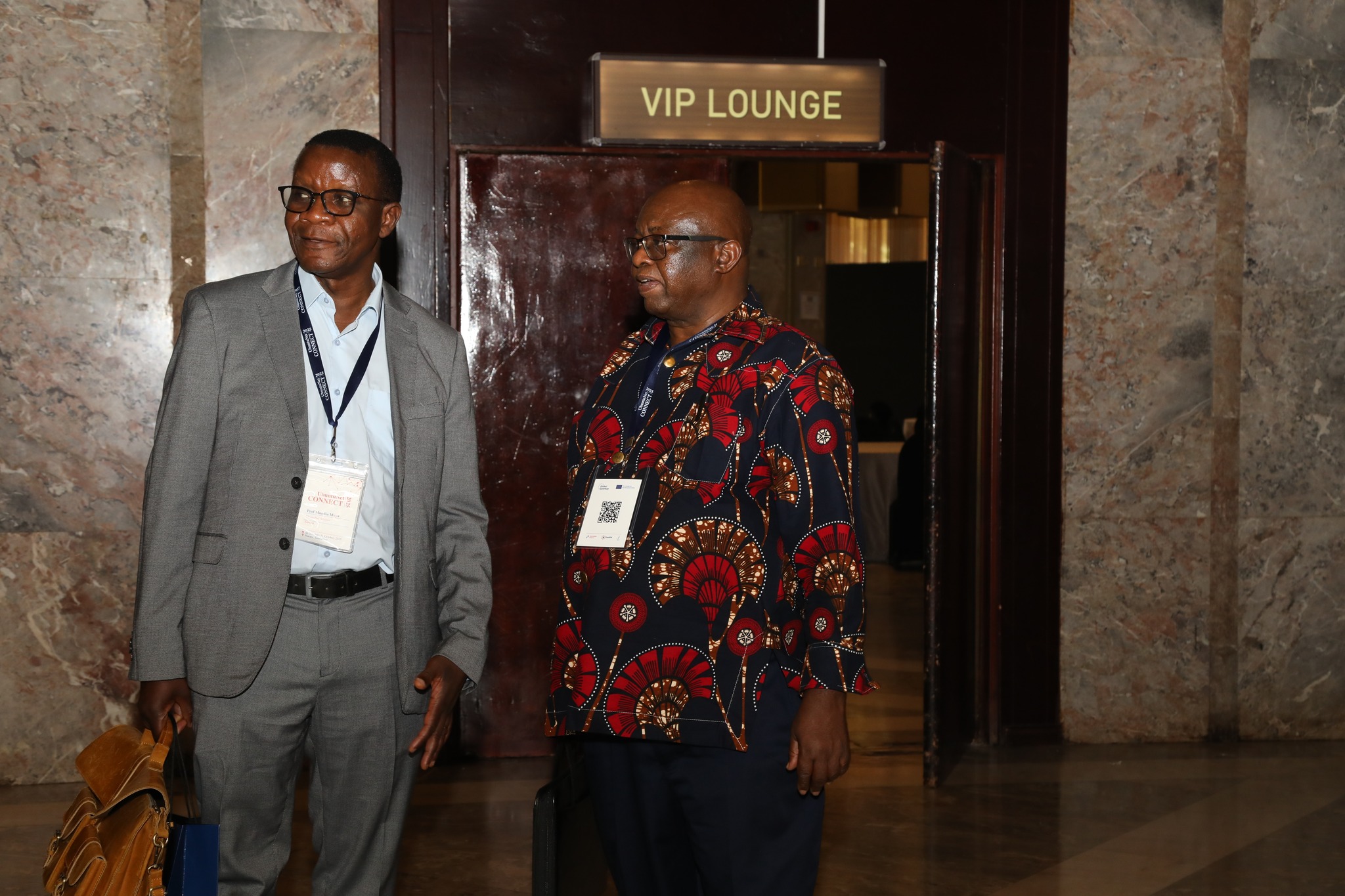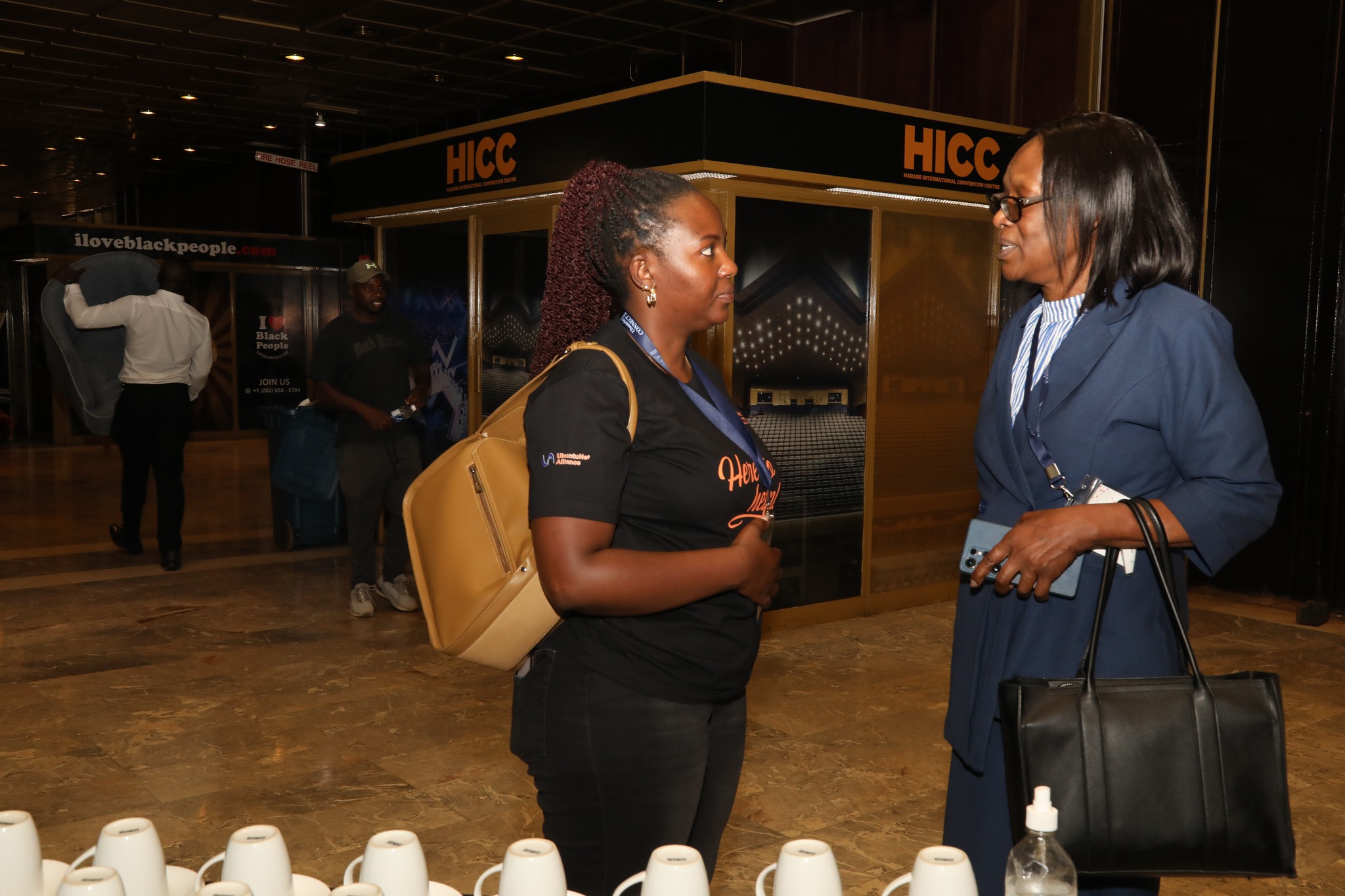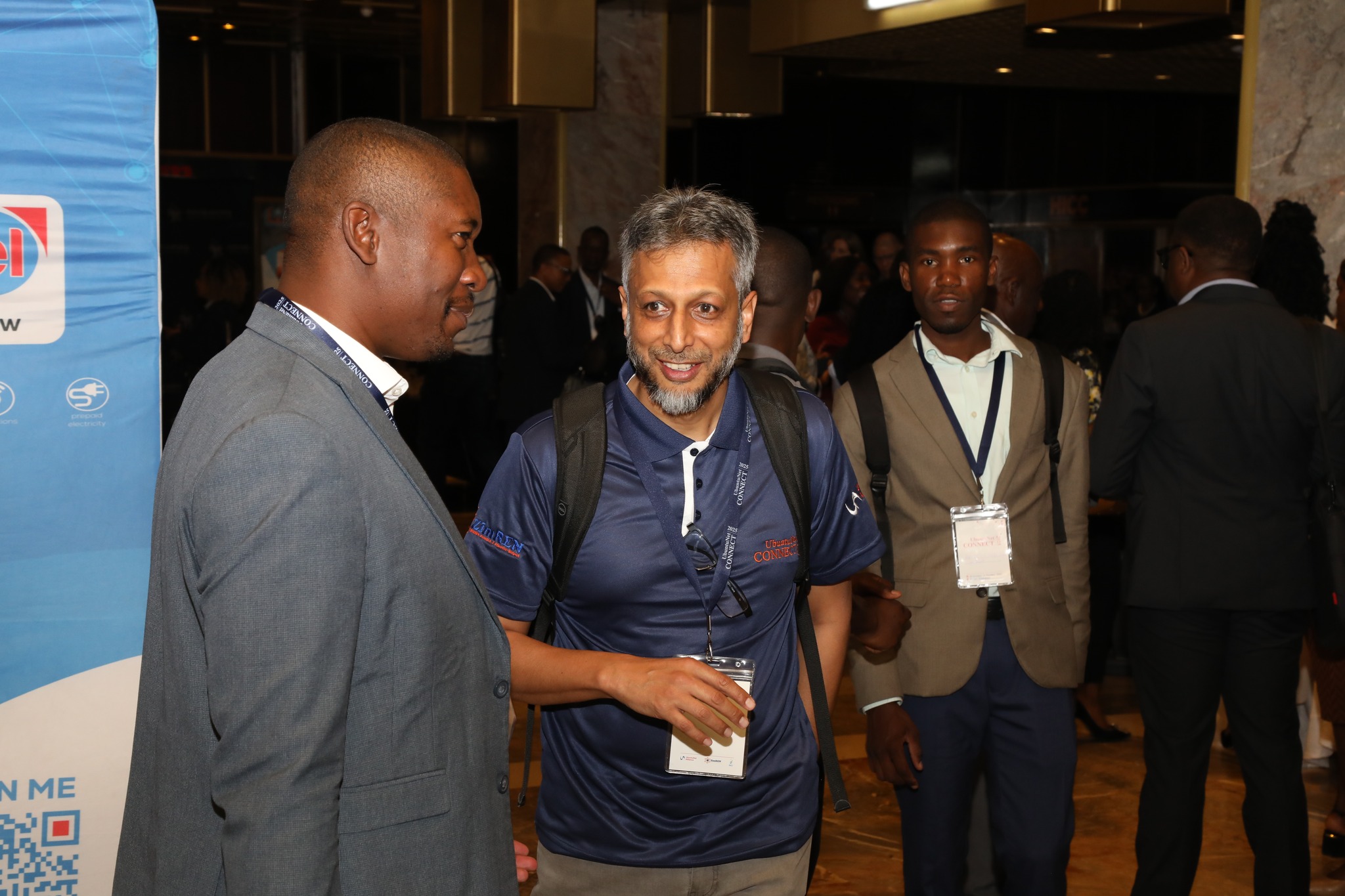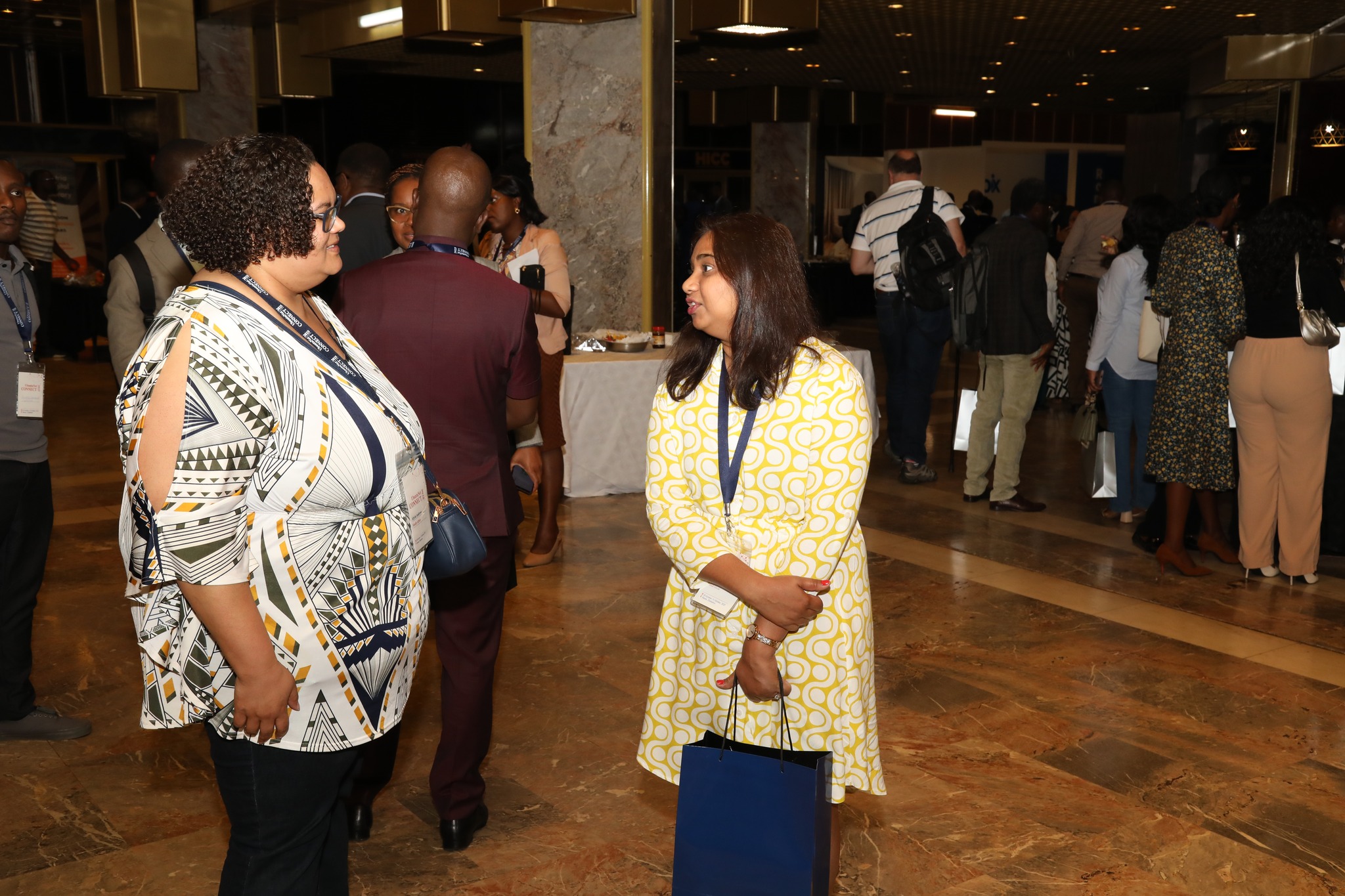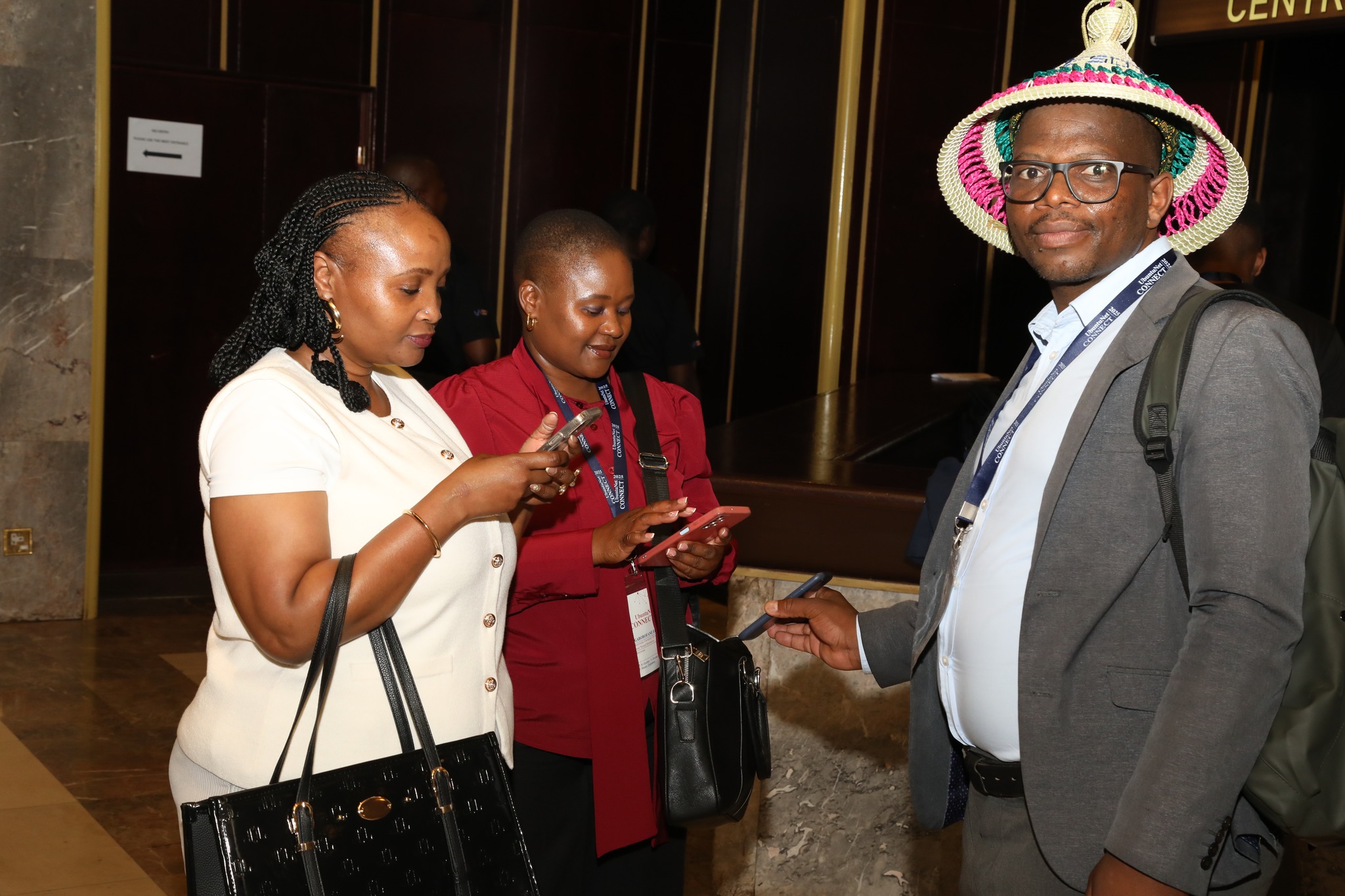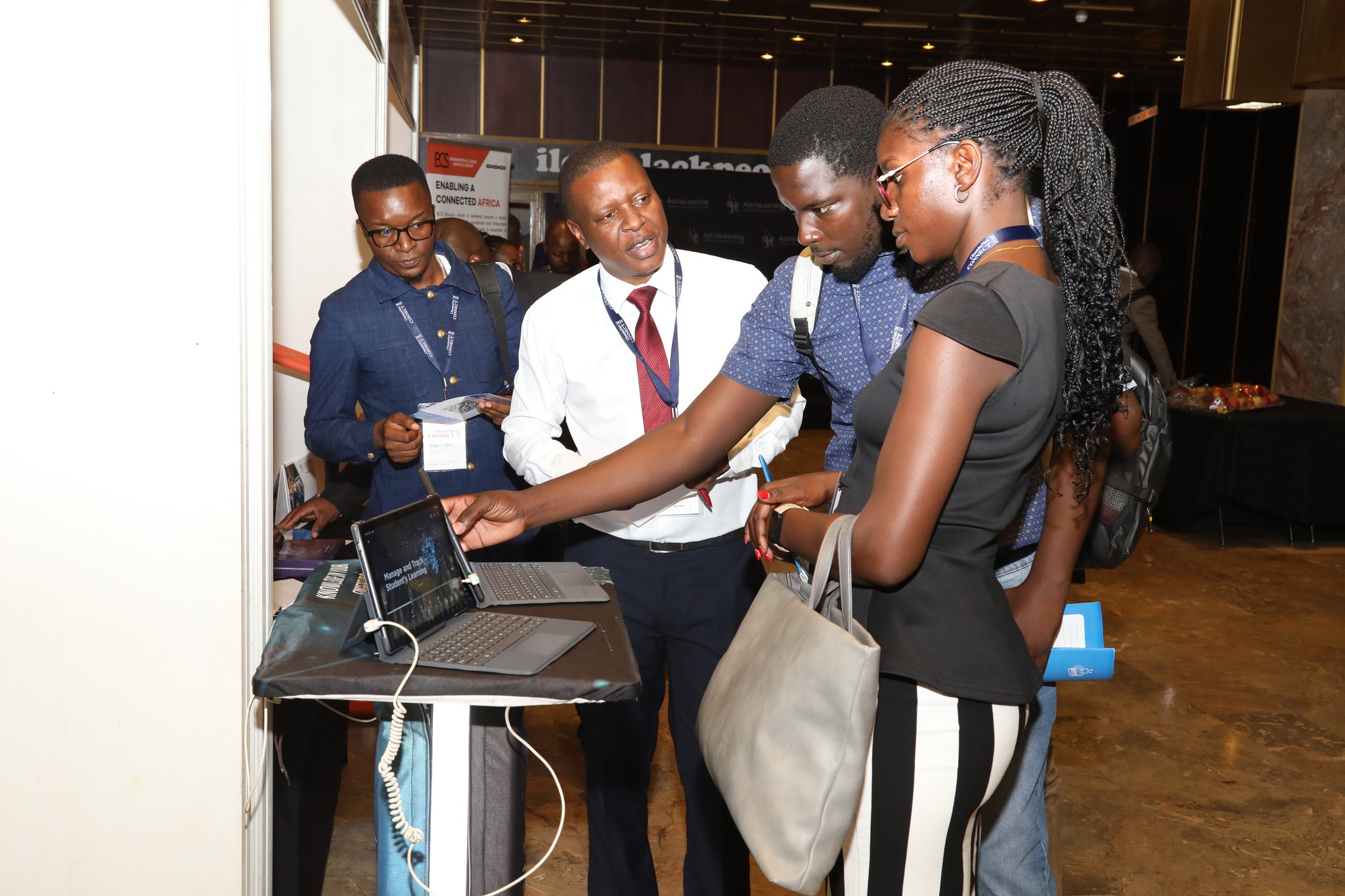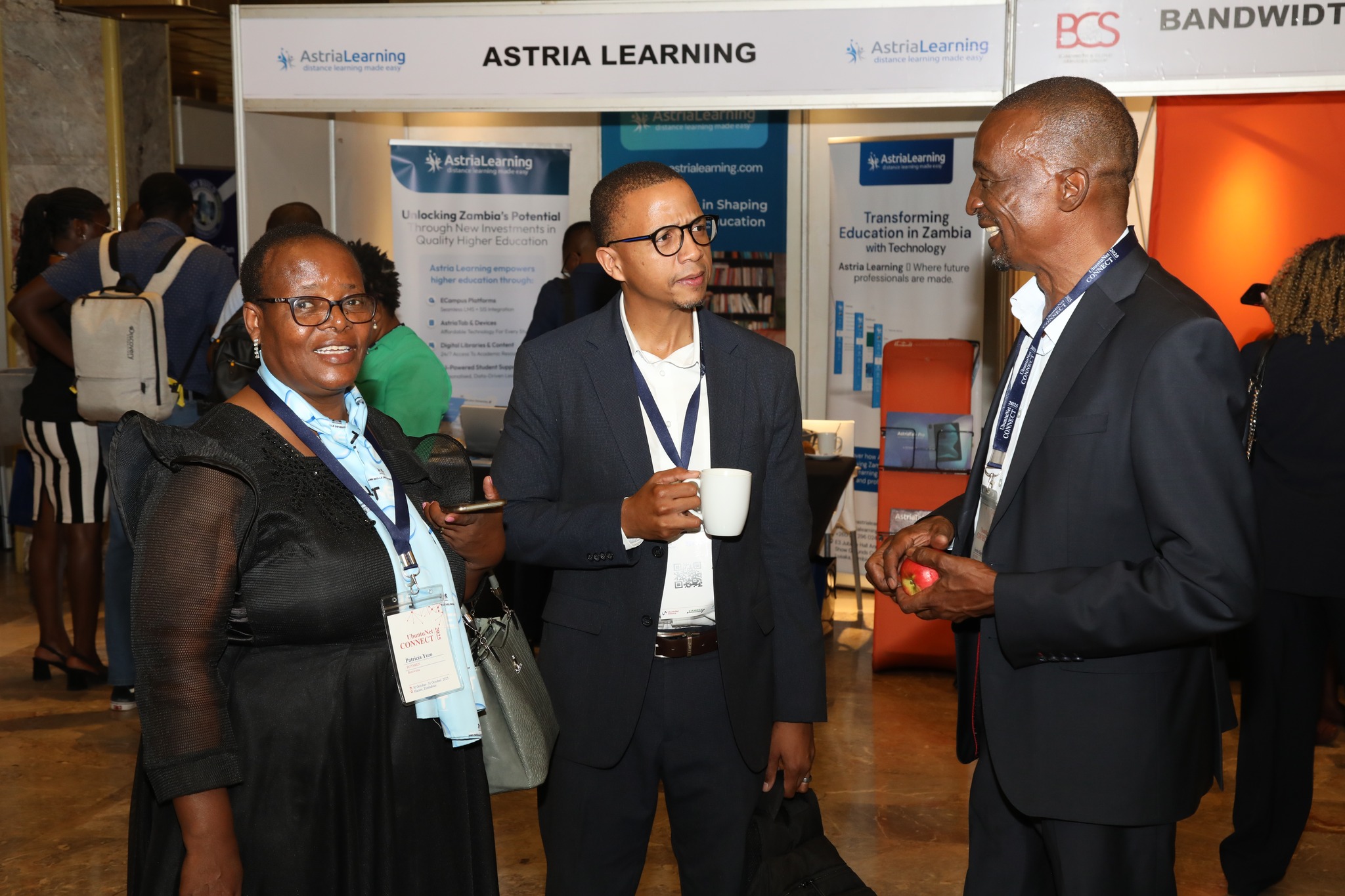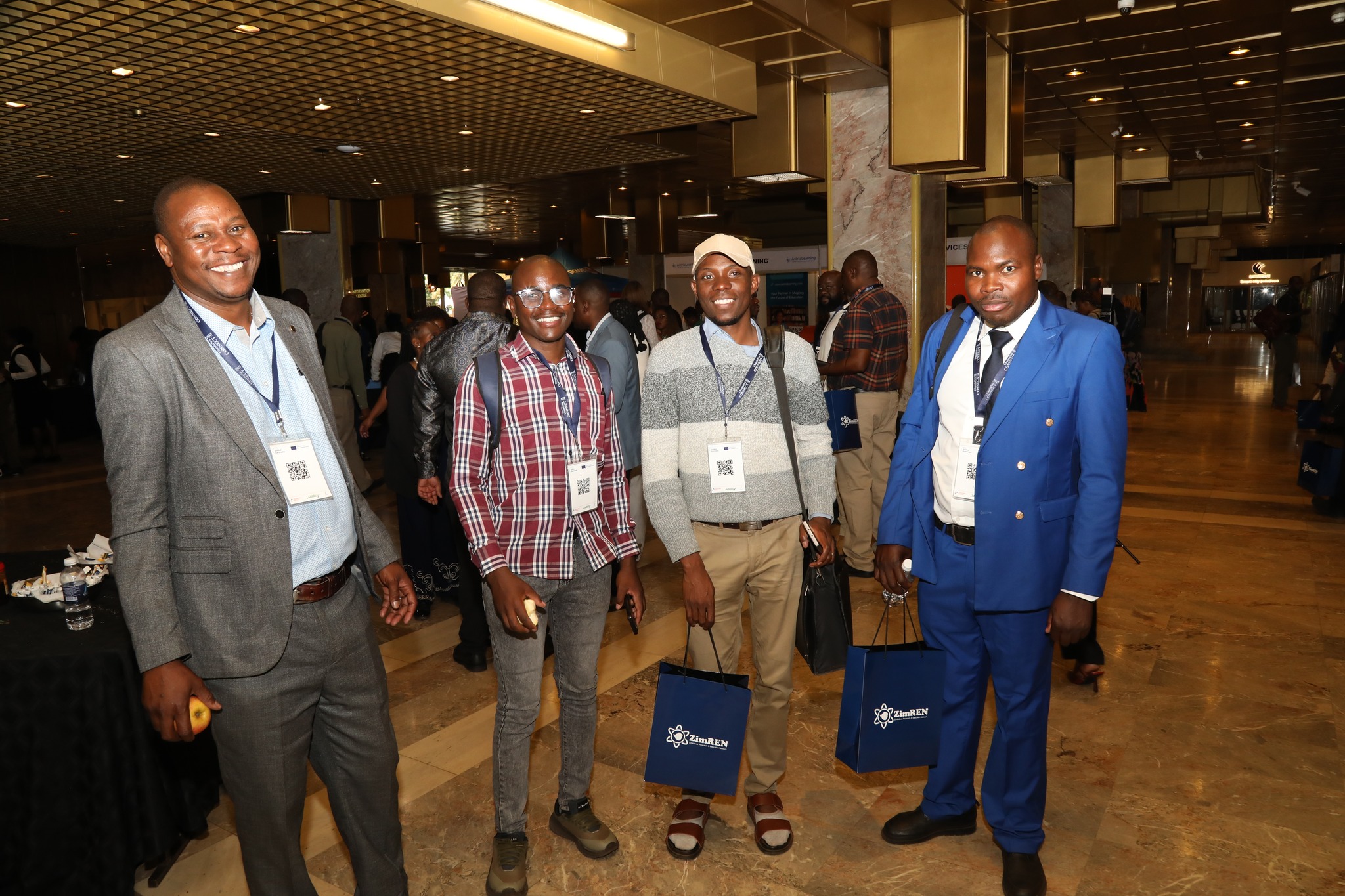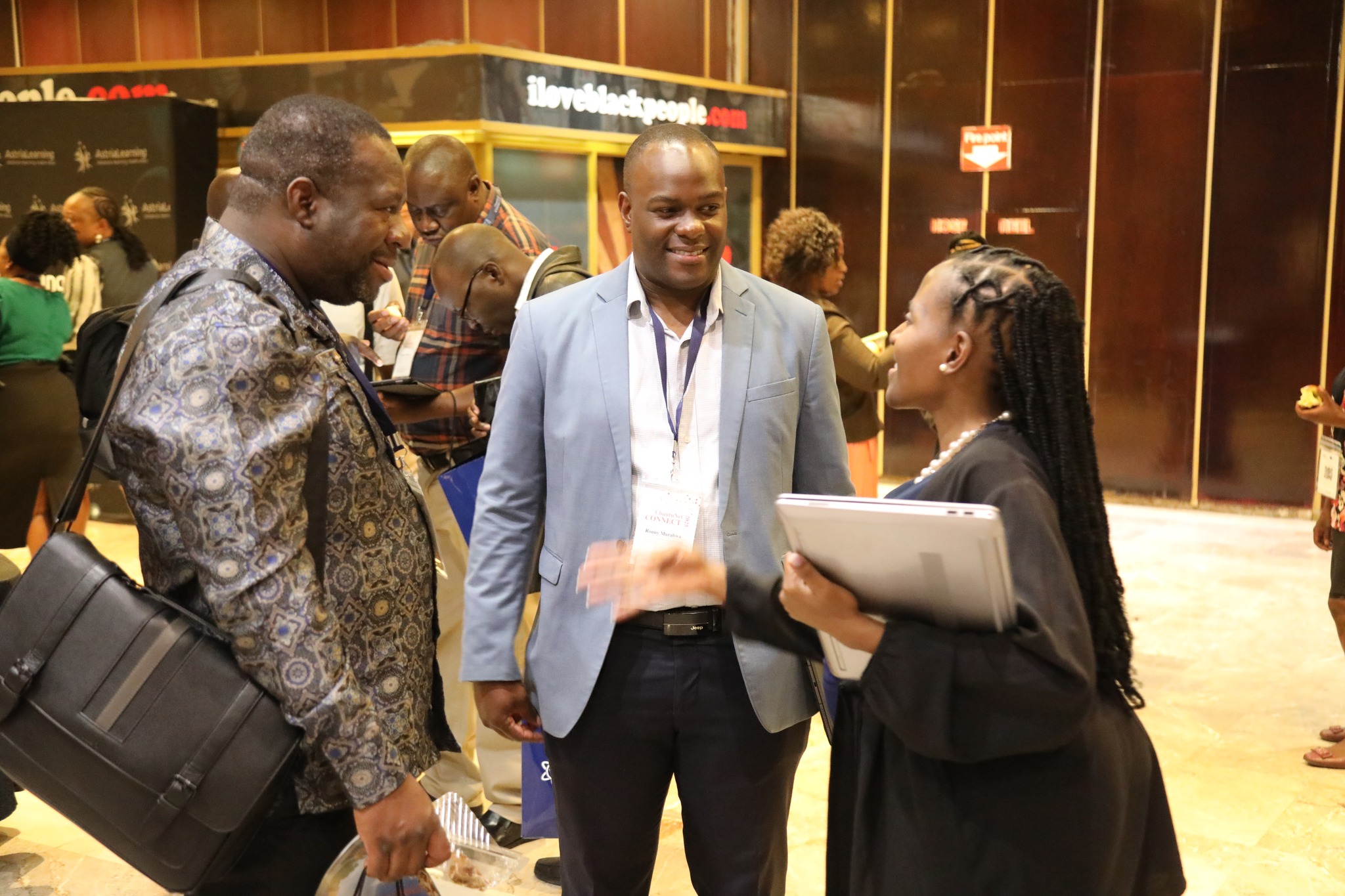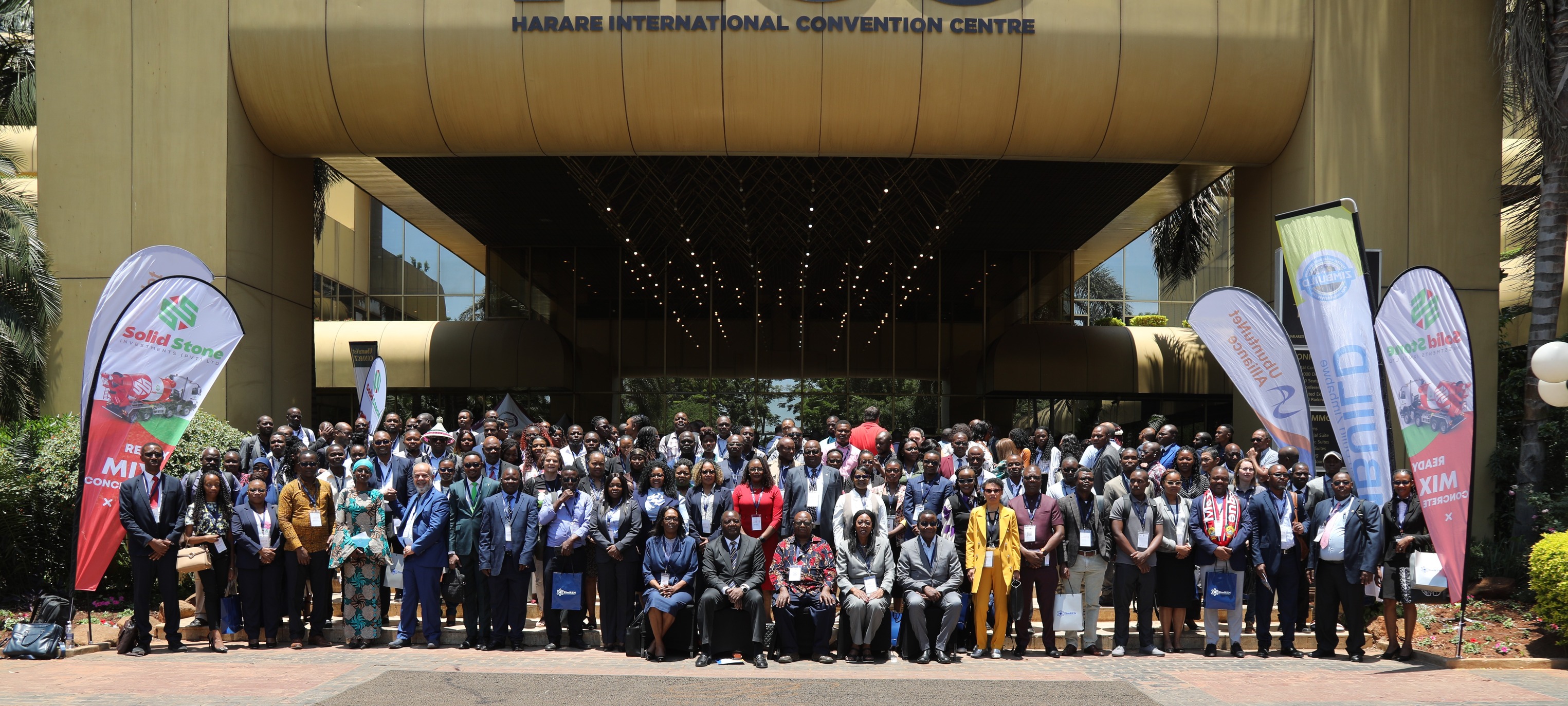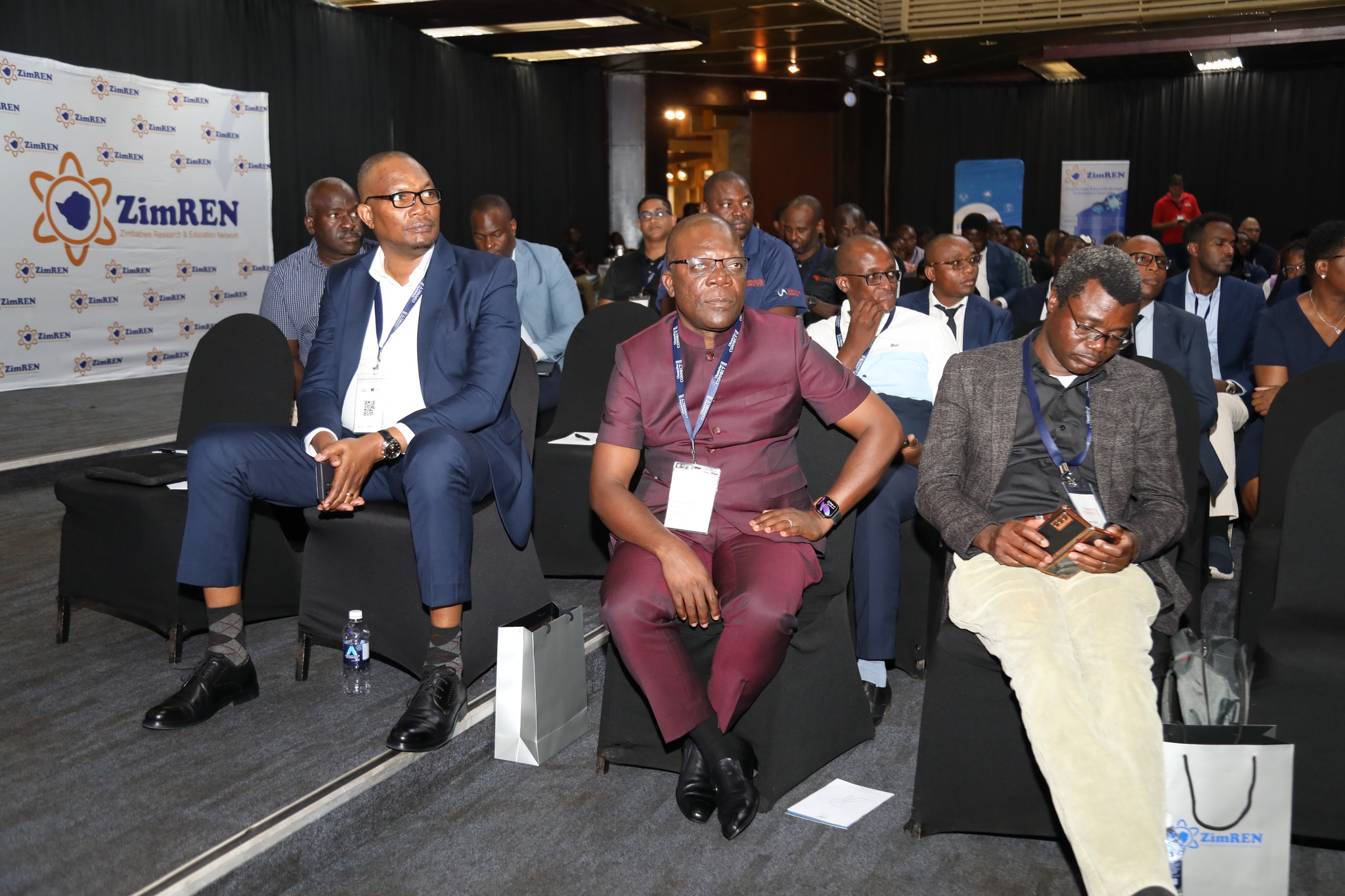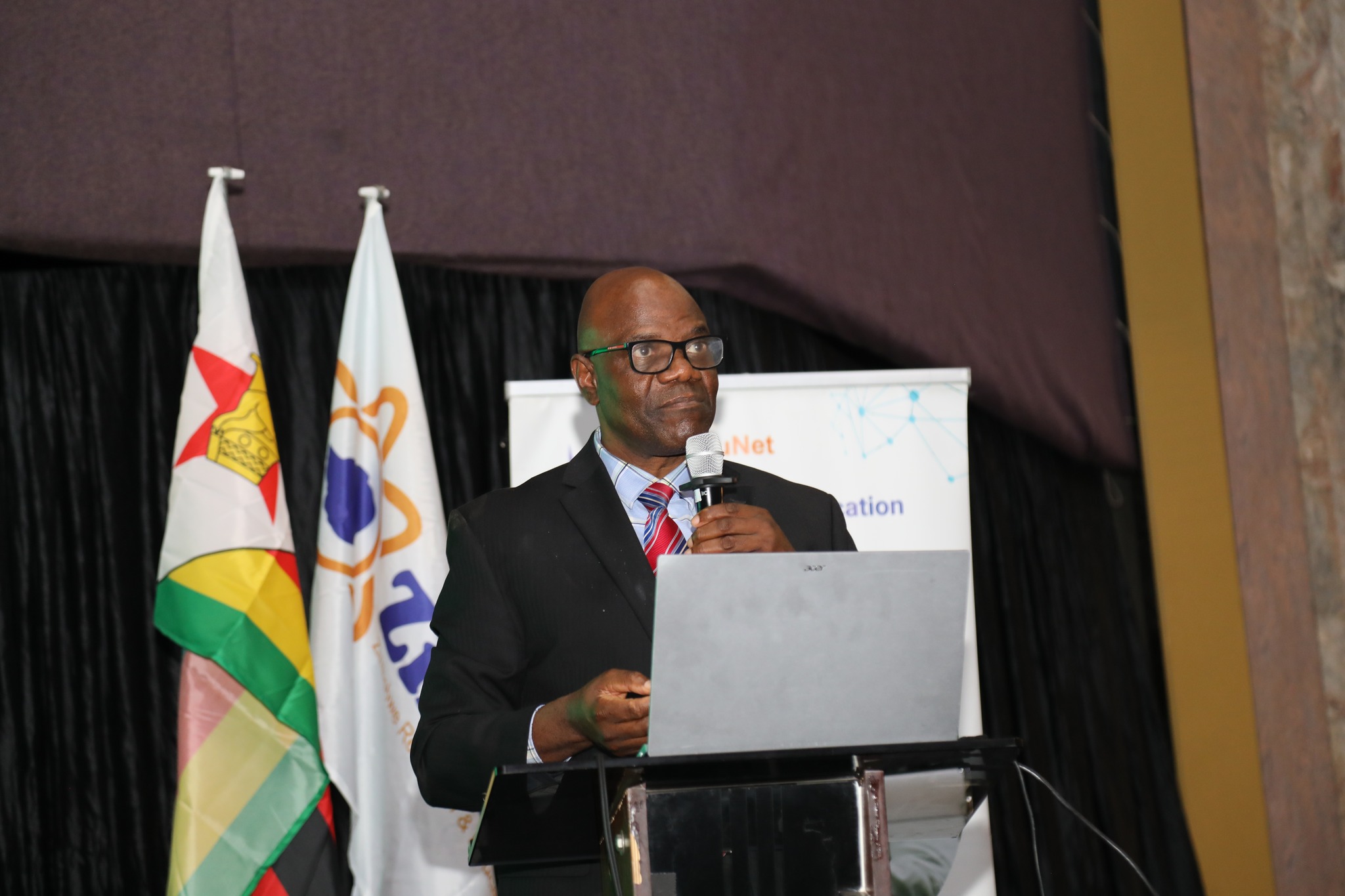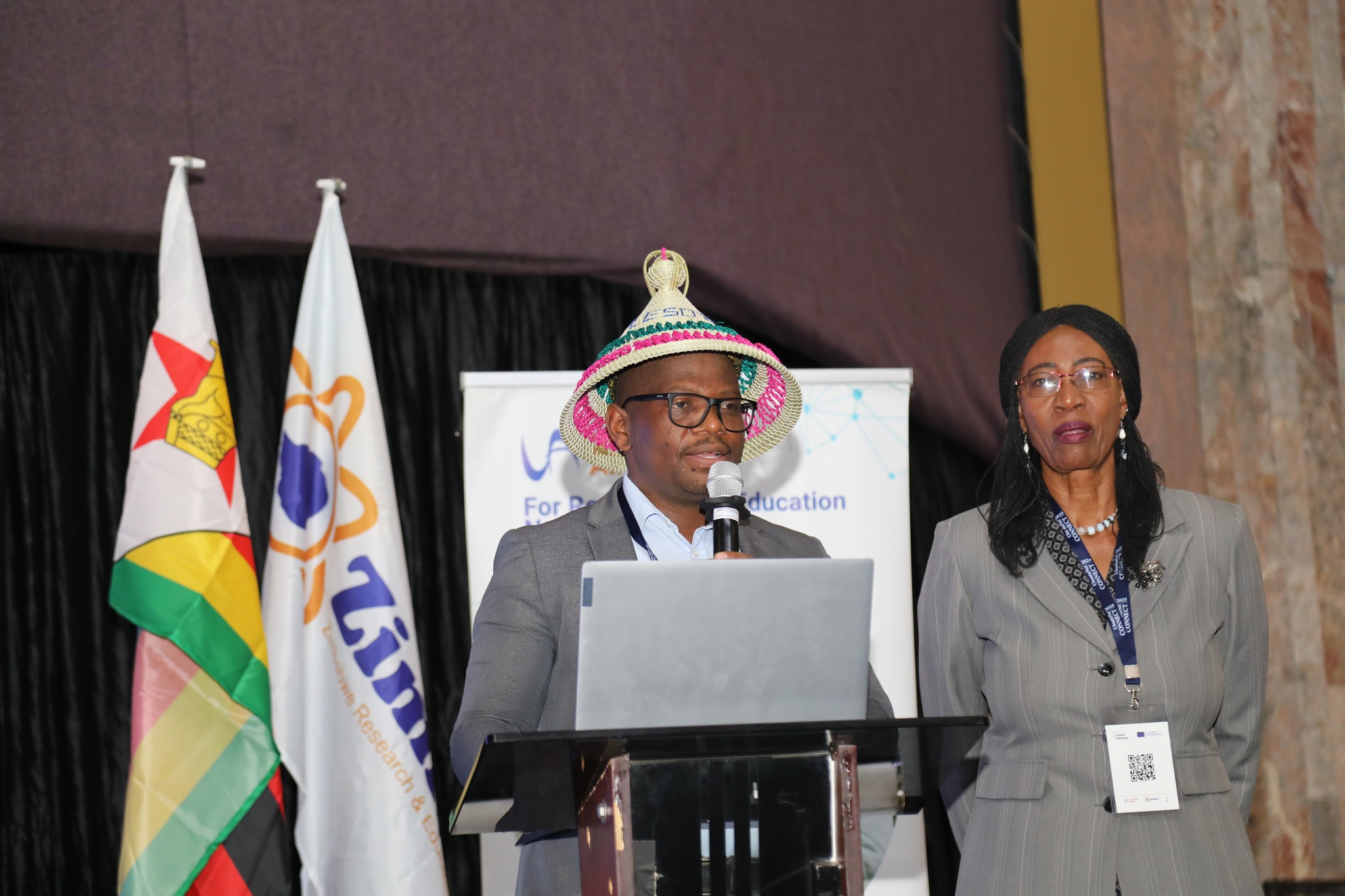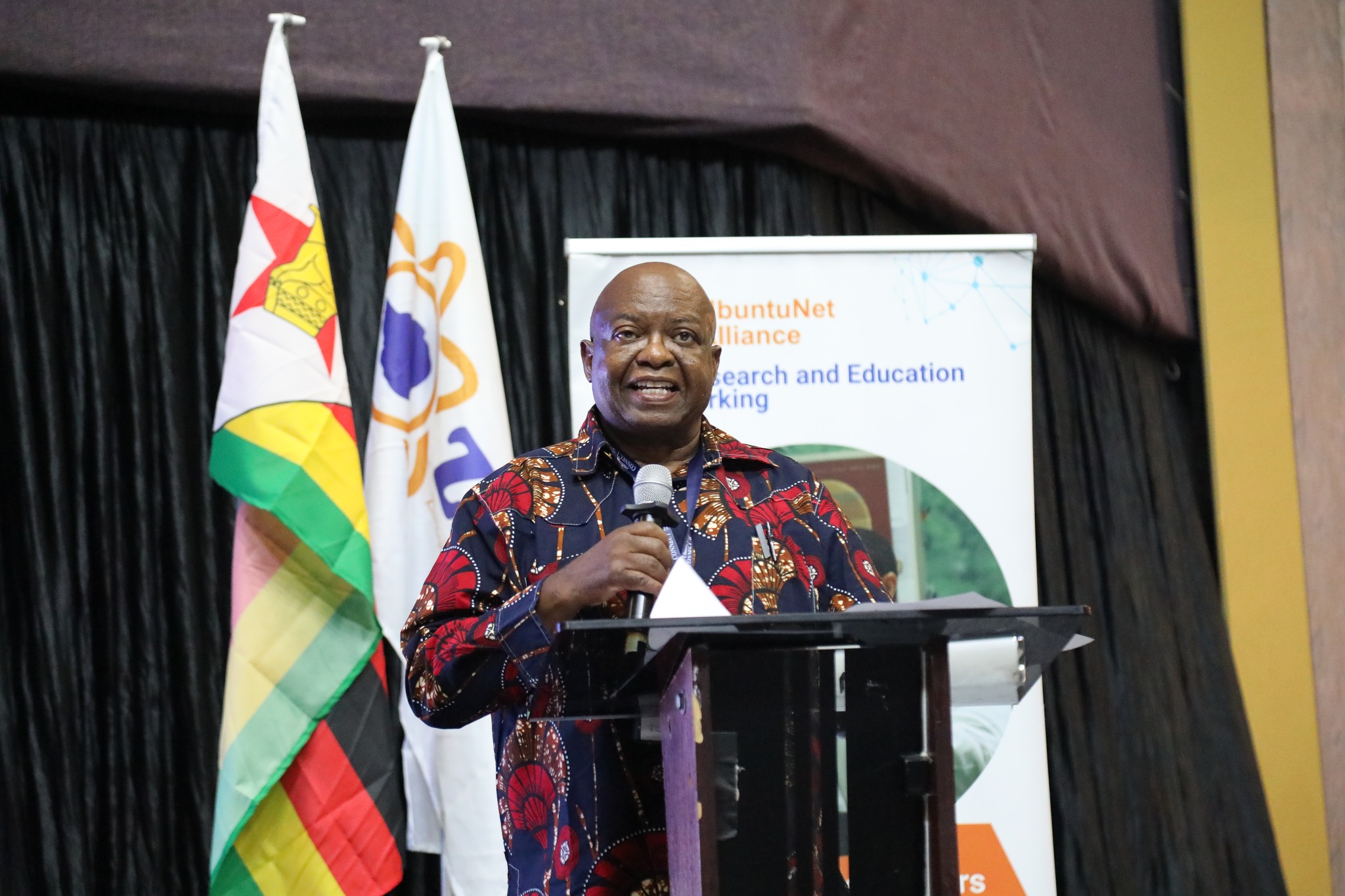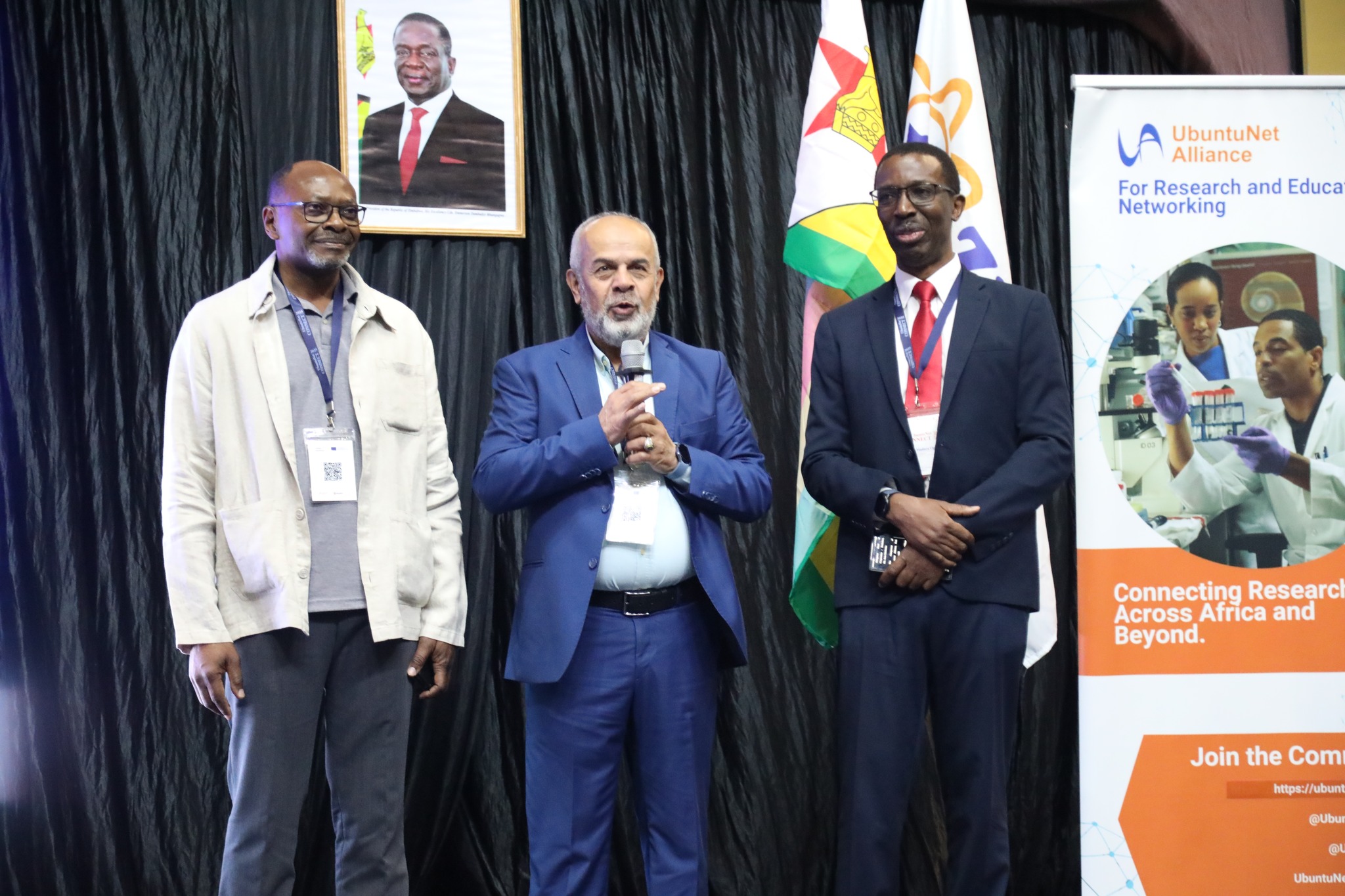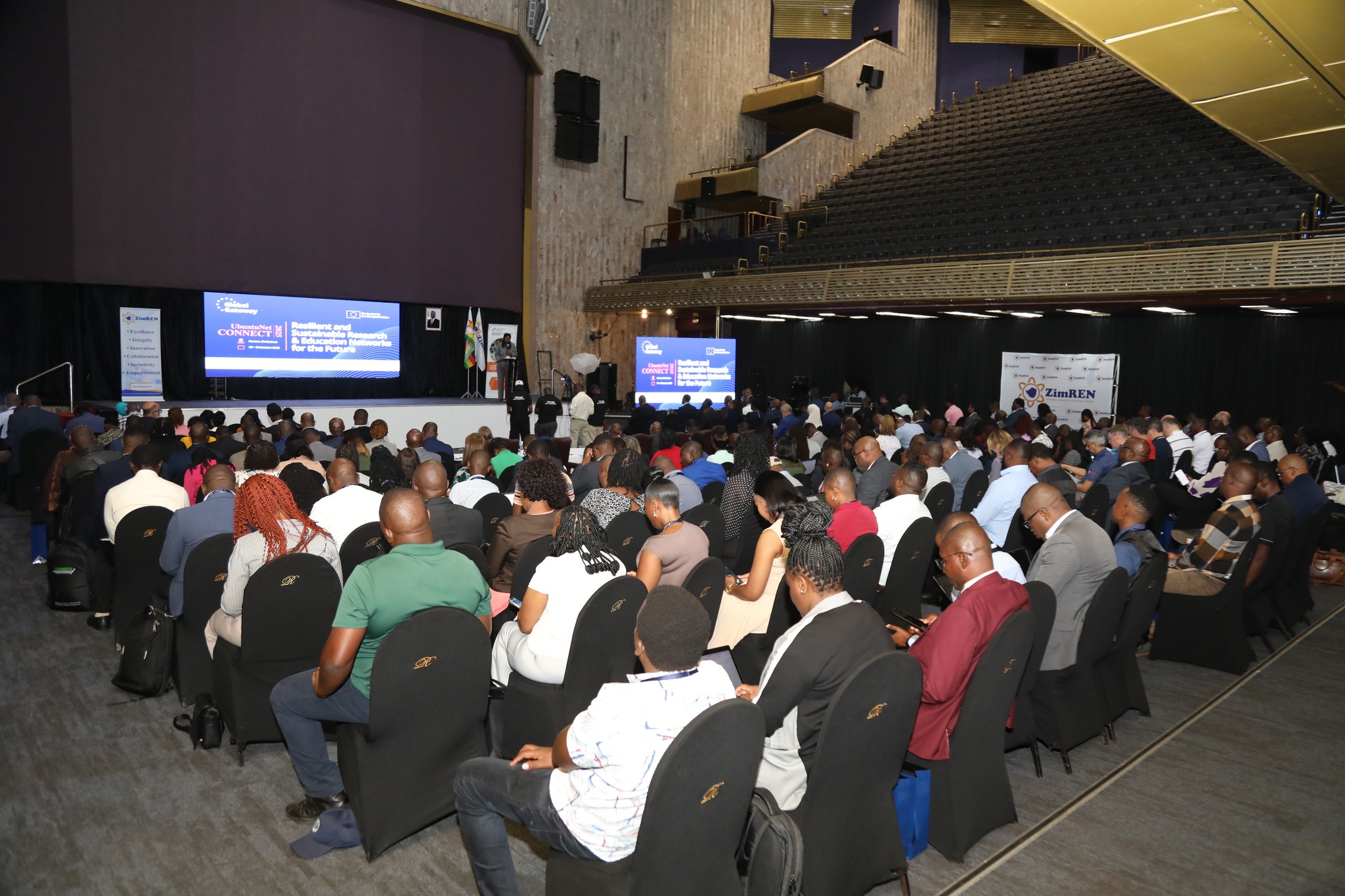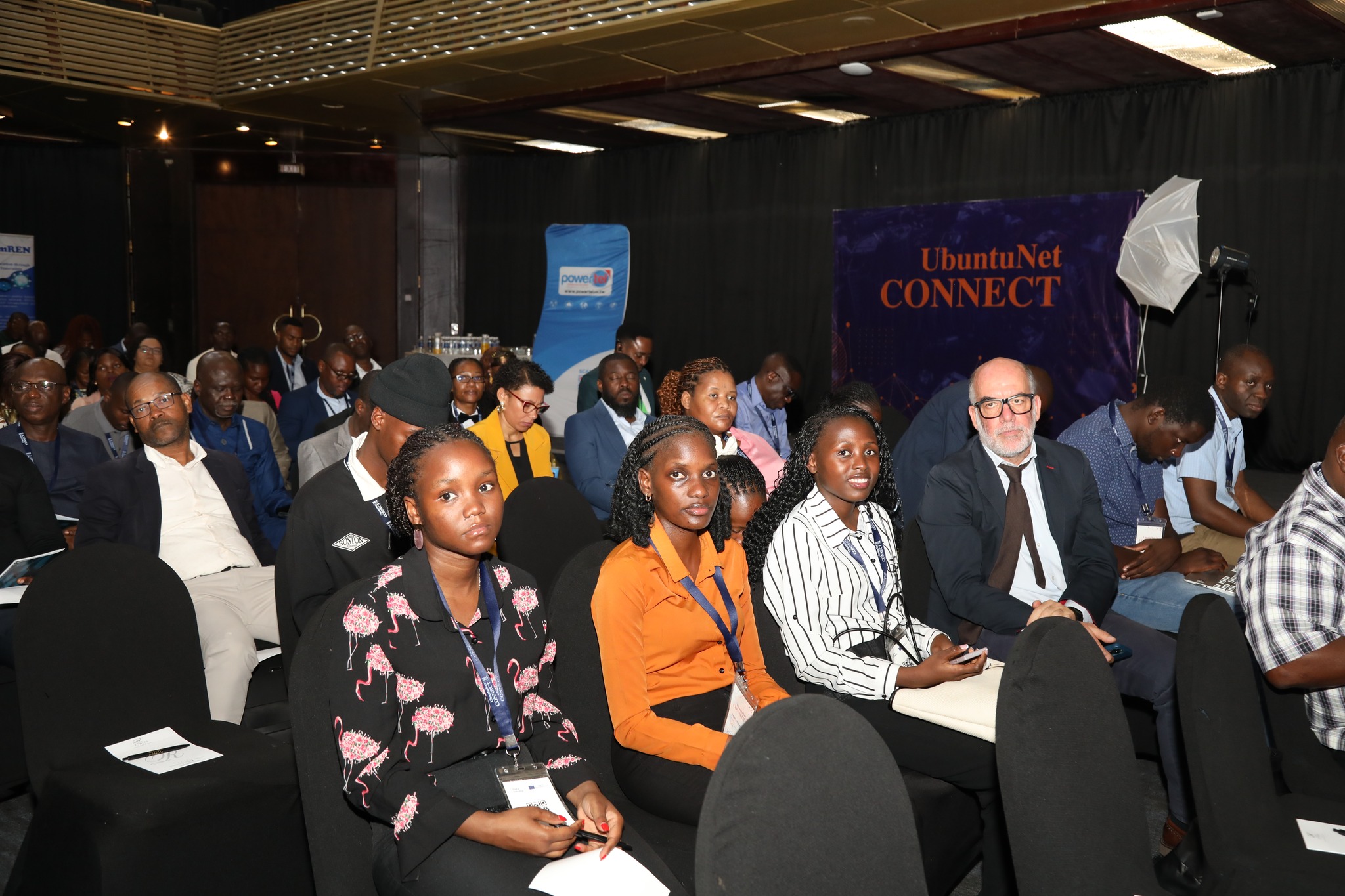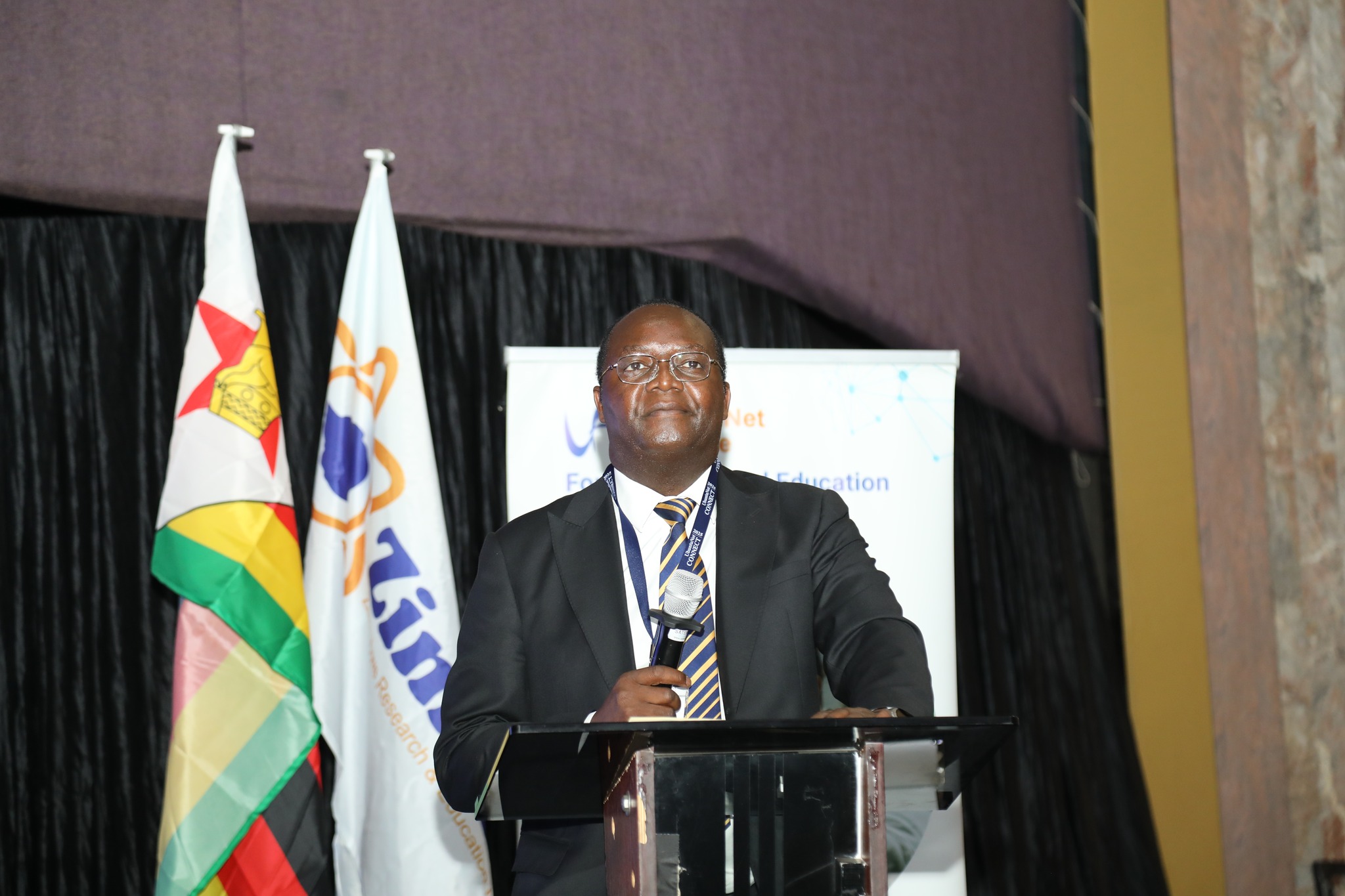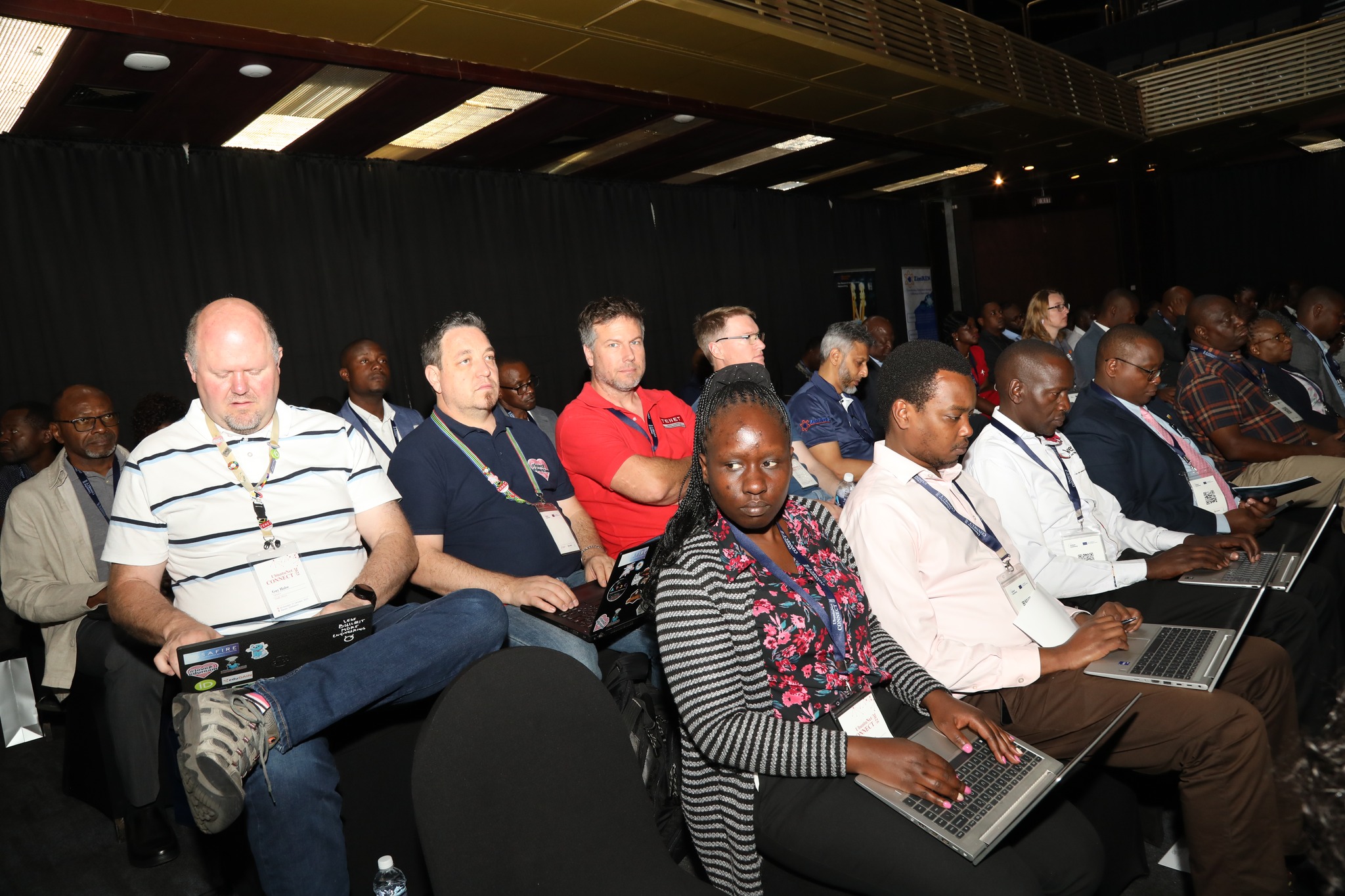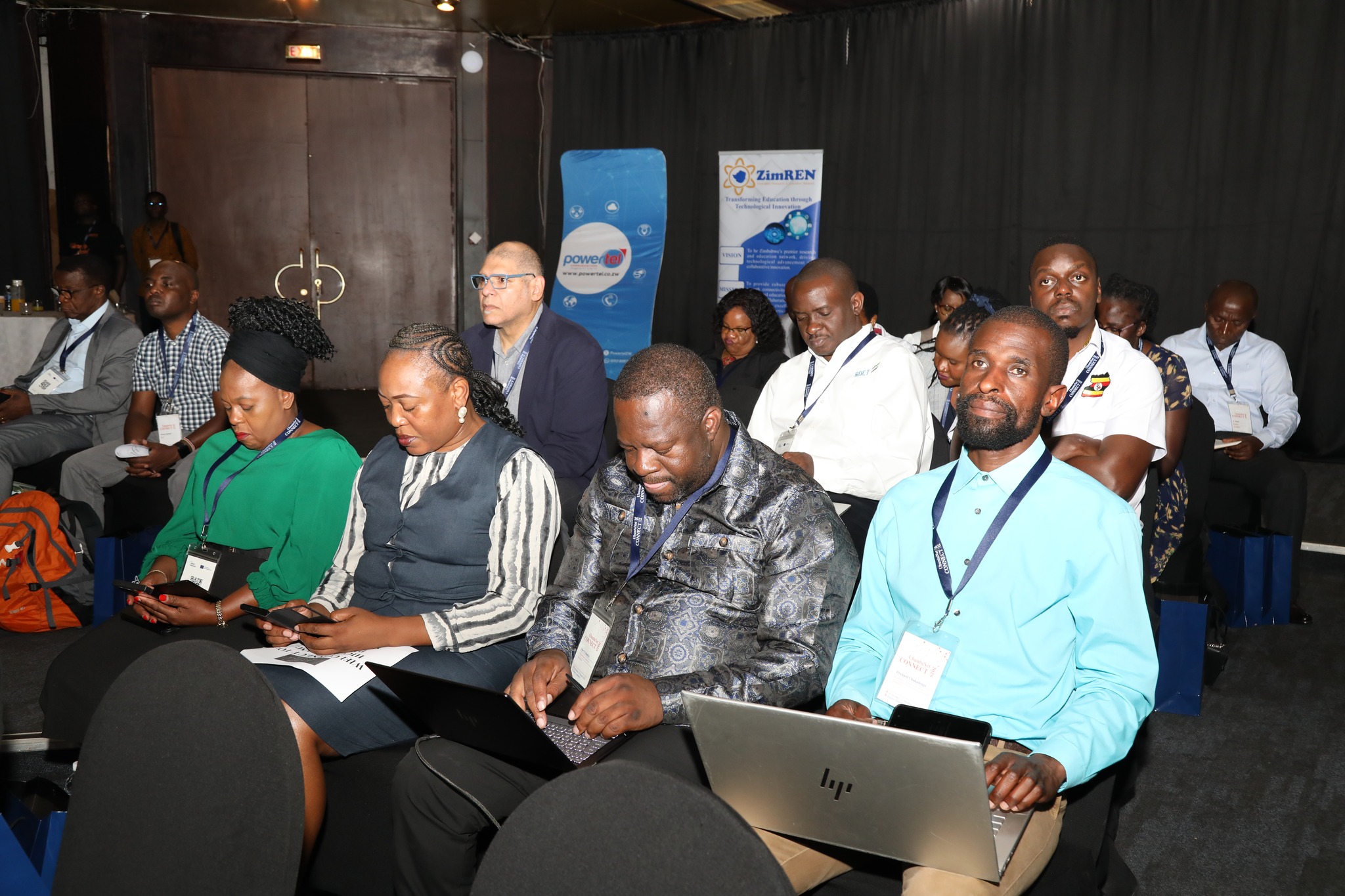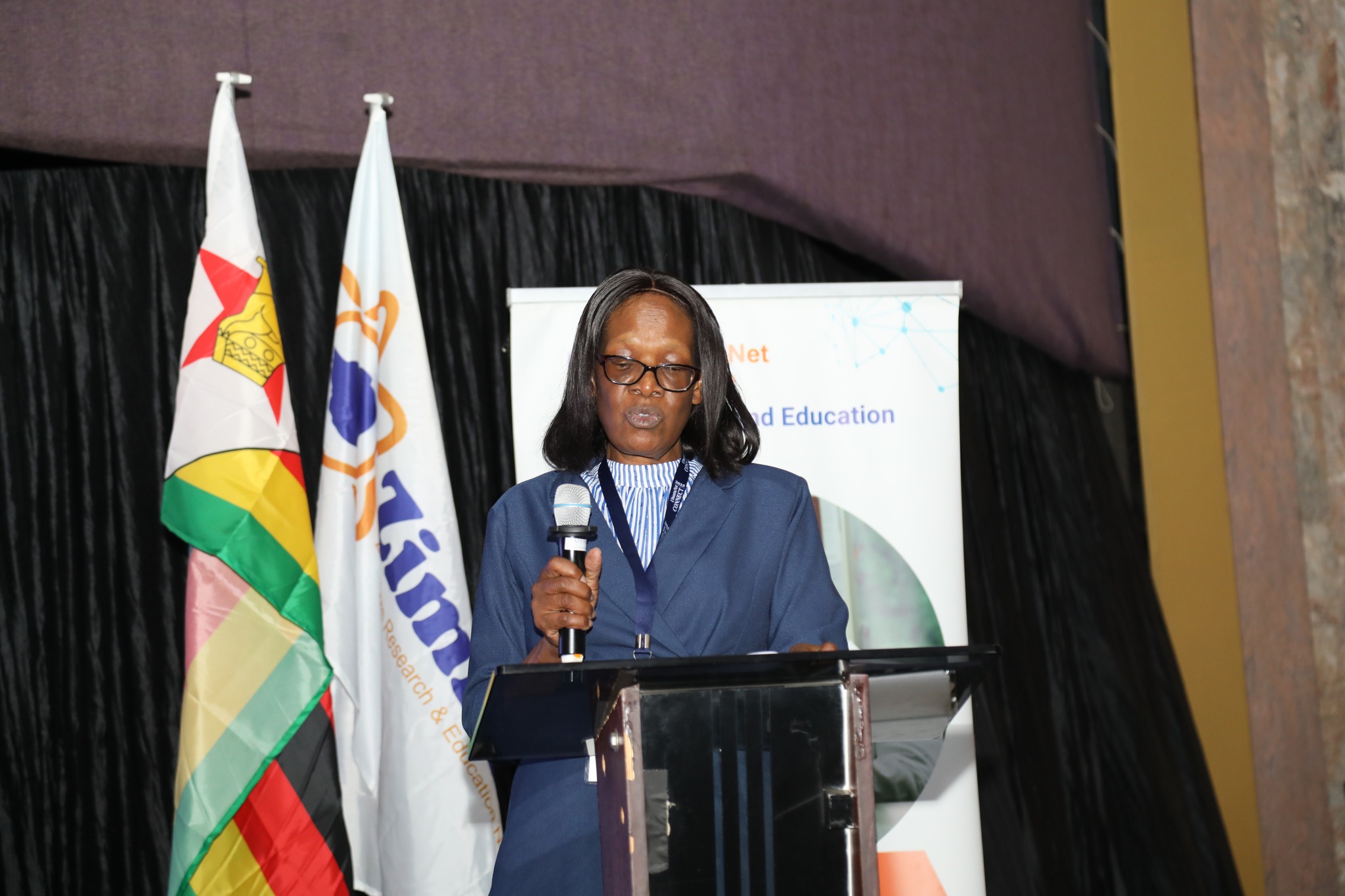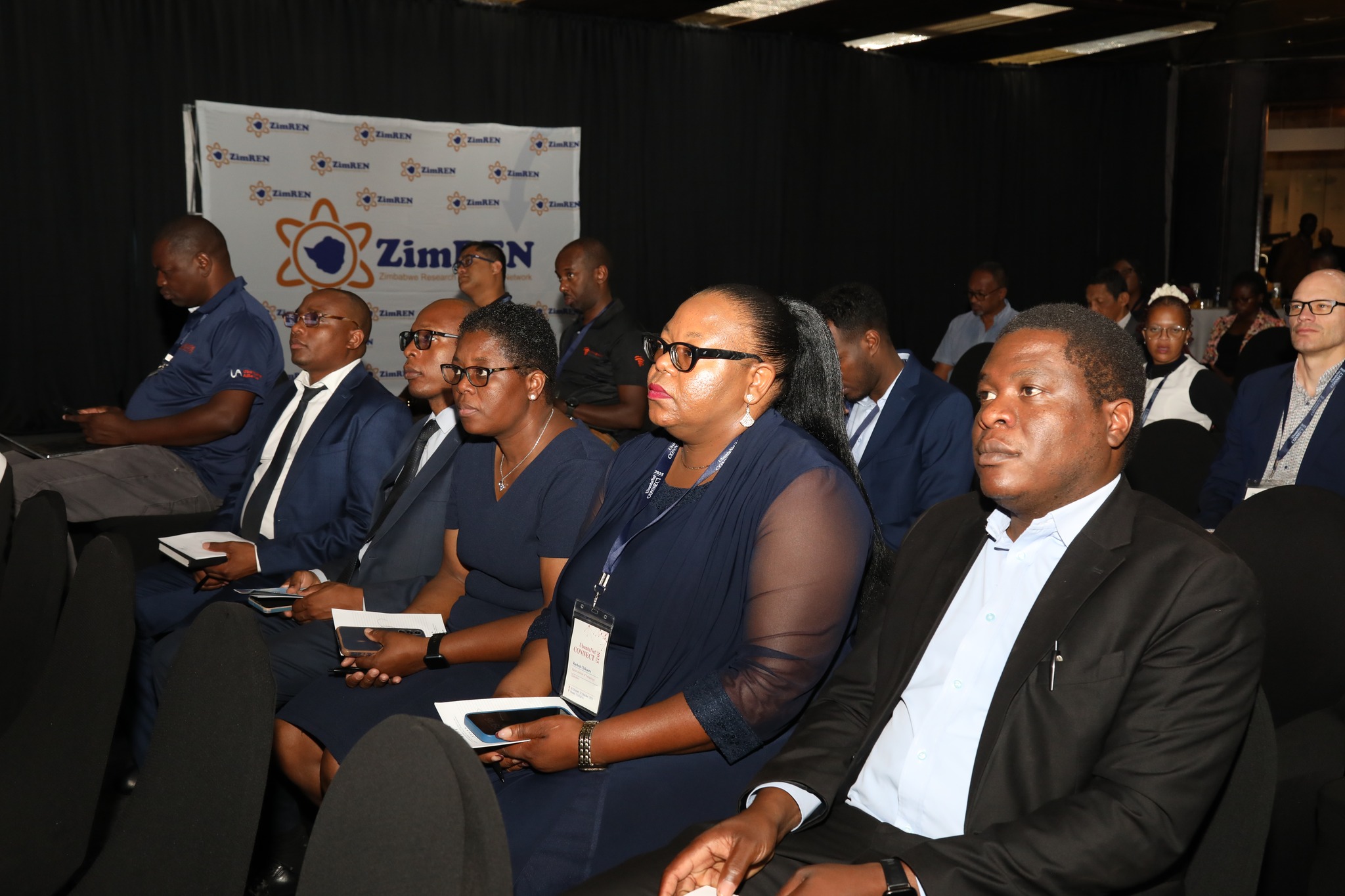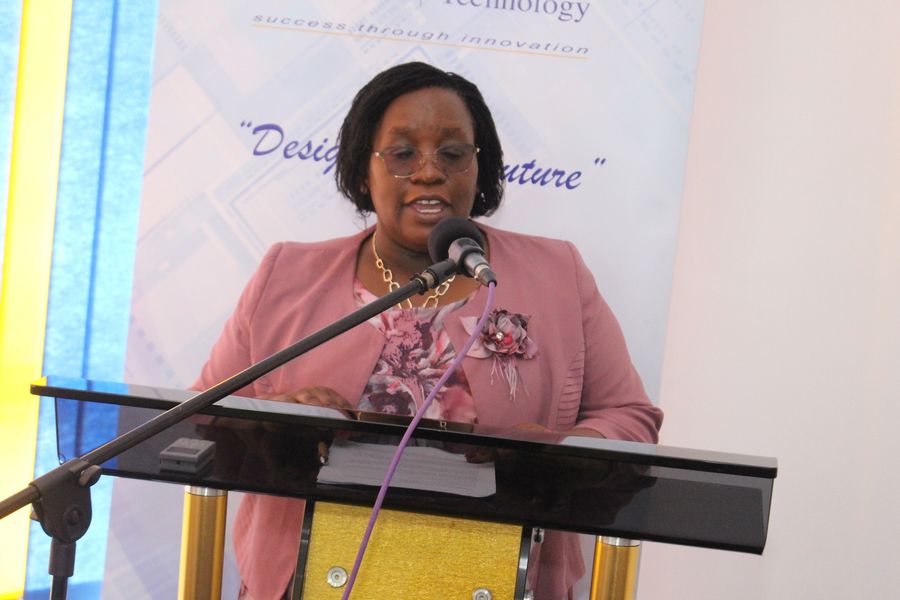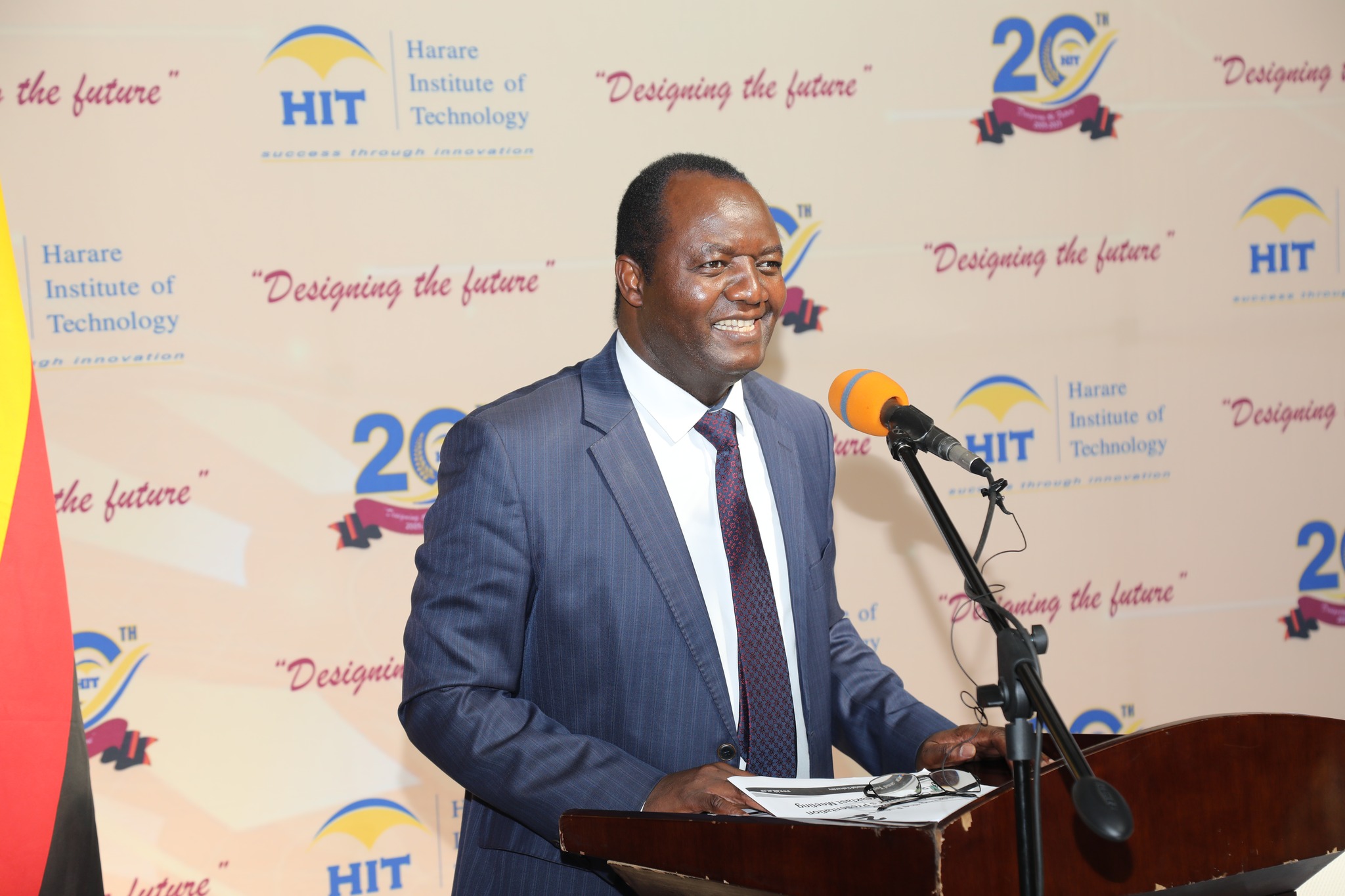The 18th edition of the prestigious UbuntuNet-Connect 2025 Conference, running under the theme “Resilient and Sustainable Research and Education Networks for the Future,” was officially opened on Thursday, 30 October 2025, in the vibrant city of Harare, at the Harare International Conference Centre (HICC) in Zimbabwe, hosted by the Zimbabwe Research and Education Network (ZIMREN).
The conference, scheduled to run through October 30th and 31st, brought together leading experts, policymakers, and technology enthusiasts from across the region to discuss advancements in research and education networking.
The official opening ceremony marked a significant milestone for ZIMREN as it hosted this major regional gathering for the first time in several years. Dignitaries, including government officials, representatives from ZIMREN, Vice-Chancellors from local universities, and international partners, attended the event, underscoring the nation’s commitment to advancing digital connectivity and fostering collaboration in the research and education sectors.
In his official address, Guest of Honour, the Minister of Higher and Tertiary Education, Innovation, Science and Technology Development, Honourable Fredrick Shava, represented by the Chairperson of the Zimbabwe Universities Vice Chancellors’ Association (ZUVCA) and Midlands State University Vice Chancellor, Professor Victor Ngonidzashe Muzvidziwa emphasized the critical role of digital infrastructure and collaborative networks in transforming higher education and research across Africa.
The Minister reaffirmed Zimbabwe’s commitment to leveraging innovation, science, and technology for national development, highlighting Zimbabwe’s own Education 5.0 initiative, which seeks to produce graduates not only with knowledge but with entrepreneurial and practical skills aligned with industrialisation and local resource beneficiation.
He underscored the importance of resilient and sustainable Research and Education Networks (RENs) as the lifeblood of Africa’s knowledge economy, facilitating rapid data exchange, collaborative research, and equitable access to information. The Minister pointed out that Zimbabwe, through its Zimbabwe Research and Education Network (ZIMREIN), is actively building a robust digital ecosystem that empowers academic institutions and research bodies.
The conference’s theme, “Resilient and Sustainable Research and Education Networks for the Future,” resonated deeply with the Minister’s vision. He called for collective effort, regional cooperation, and shared expertise to strengthen infrastructure, develop sustainable funding models, and prioritise cybersecurity.
Highlighting Zimbabwe’s strides under Education 5.0, he emphasised initiatives such as establishing innovation hubs, promoting indigenous resource utilisation, and protecting intellectual property rights. The Minister also announced targeted programs to address the gender gap in STEM fields through scholarships and mentorship, ensuring a diverse pipeline of future innovators.
He stressed that embracing emerging technologies like artificial intelligence, machine learning, and the Internet of Things is essential for enhancing research capabilities. Furthermore, he advocated for the democratisation of knowledge through open science principles and open access to accelerate scientific progress across the continent.
Concluding his speech, the Minister urged participants to see these networks not merely as technological tools but as strategic assets vital for Africa’s socio-economic transformation. He called for renewed partnerships, innovative resource mobilisation, and shared standards to ensure the long-term sustainability of regional research and education networks.
He officially declared the UbuntuNet Connect 2025 Conference open, inspiring attendees to work together towards building resilient, inclusive, and transformative networks that will empower every student, researcher, and innovator across Africa.
ZIMREN emphasised its ongoing efforts to enhance internet infrastructure, promote digital inclusion, and support innovative research initiatives. In her opening remarks, Ms Miriam Chahuruva, the ZIMREN Chief Executive, highlighted Zimbabwe’s strategic role in the broader UbuntuNet Alliance, an organisation dedicated to strengthening regional research and education networks across Africa.
Addressing a diverse gathering of academics, researchers, government officials, and international delegates, Ms Miriam Chahuruva highlighted Zimbabwe’s recent achievements in digital connectivity. She recalled the nation’s successful integration into the global research network through the Africa Connect Project, which significantly enhanced Zimbabwe’s research capabilities with a 10-gigabit connection. “This milestone has transformed our research landscape, enabling seamless collaboration and access to digital resources worldwide,” she noted.
Ms Chahuruva underscored the importance of resilient and sustainable networks in confronting contemporary challenges such as cyber threats, climate change, and technological advancements like artificial intelligence. She stressed that these networks are vital for supporting political, educational, and scientific initiatives across the region.
“Zimbabwe has already commenced with the next phase of connectivity projects under Africa Connect 4, focusing on capacity building for engineers, librarians, and institutions through in-country training programmes,” she said.
She also highlighted Zimbabwe’s commitment to empowering women in technology through initiatives like the Women’s Academy, which recently saw Zimbabwean teams excel in regional competitions. “Our goal is to foster a new generation of innovators and leaders who can shape the future of Africa’s digital landscape,” said the ZIMREN CEO.
Welcoming international participants, Ms Chahuruva emphasised the importance of collaboration and knowledge sharing. She expressed confidence that the connections made at the conference would have ripple effects across Zimbabwe, Africa, and beyond, ultimately contributing to a more connected and resilient continent.
Concluding her speech, she encouraged all attendees to engage actively, share ideas, and forge partnerships that will drive innovation and development in research and education networks. With delegates from East and Southern Africa present, Zimbabwe is poised to continue its leadership in regional digital transformation efforts.
HIT Vice Chancellor Professor Quinton Chamunorwa Kanhukamwe also delivered a compelling address at the conference, emphasising Zimbabwe’s achievements in digital connectivity and its commitment to building a resilient and sustainable research and education network across Africa.
Prof Kanhukamwe expressed deep gratitude to the event organisers and key partners, including the European Union and the UbuntuNet Alliance. Underscoring the importance of the conference’s theme: “Resilient and Sustainable Research and Education Networks for the Future”, Prof Kanhukamwe highlighted Zimbabwe’s significant milestones in digital infrastructure, particularly the country’s integration into the high-speed UbuntuNet Alliance backbone through the Africa Connect 3 project, co-funded by the European Union. This connection, offering speeds of 10 gigabytes per second, represents a new frontier for collaboration, digital innovation, and access to global scientific resources.
He also emphasised Zimbabwe’s efforts to expand digital services such as EDROM, a secure global roaming platform that enables seamless access to academic networks for students, lecturers, and researchers both locally and internationally.
Looking ahead, Prof Kanhukamwe outlined strategic priorities for Zimbabwe’s research and education sector, including scaling broadband capacity, extending connectivity to underserved institutions, strengthening cybersecurity, and ensuring the sustainability of digital infrastructure. He asserted that these initiatives aim to position Zimbabwe as a competitive player in the global research landscape.
He expressed confidence that the ongoing discussions on artificial intelligence, high-performance computing, cybersecurity, and open science would strengthen partnerships and inspire innovative ideas for Africa’s digital future.
Prof Kanhukamwe praised the event’s role in fostering enduring collaborations and advancing Africa’s technological ambitions. “This conference serves as a beacon of Africa’s determination to harness technology and connectivity for societal progress,” he said.
Zimbabwe’s hosting of Ogun to Net Connect 2025 marks a significant step forward in the continent’s digital transformation journey, demonstrating the country’s leadership and commitment to fostering a resilient, innovative research and education ecosystem.
The UbuntuNet Alliance Board Chairperson, Prof Helicy Ngambi, delivered an inspiring address, highlighting the alliance’s vital role in advancing Africa’s digital infrastructure and fostering regional cooperation.
The Board Chairperson emphasised the importance of high-level education, innovation standards, and technology development, describing talented staff and collaborative efforts as the backbone of Africa’s digital progress. She acknowledged the contributions of key partners, such as the European Union (EU), which have supported the alliance’s initiatives.
She also reflected on the growth of the alliance over the years, noting that it now comprises 15 active member countries, helping to connect over 2,500 individuals and more than 5 million students and staff across 14 nations. “The alliance’s achievements, such as the successful deployment of high-speed broadband and digital services like global roaming, have been instrumental in transforming research and education across Africa,” she said.
Prof Ngambi also highlighted Africa’s ongoing efforts to expand digital connectivity through projects like the Africa Connect series, aiming to bring safe, reliable, and high-speed internet to underserved regions. He stressed that these initiatives are not only technical achievements but also essential for fostering innovation, security, and institutional development.
She called for continued regional cooperation, emphasising the need for strategic partnerships among African nations, the European Union, and global allies to build resilient and sustainable networks. He pointed out that Africa’s digital transformation must include energy efficiency, cybersecurity, and open data sharing—elements critical for the continent’s growth.
Looking forward, the Chairperson expressed optimism about the future of Africa’s digital ecosystem, encouraging participants to embrace new ideas, technologies, and collaborations. She underscored the alliance’s commitment to responsible, ethical, and inclusive growth, emphasising that every new connection made strengthens Africa’s voice in the global conversation.
Prof Ngambi called on the participants to work together to build a connected, innovative, and resilient continent that can meet the challenges of the 21st century.
The European Union’s representative in Zimbabwe delivered a strong message of support for Africa’s digital and research infrastructure. Emphasising the importance of innovation, sustainability, and international partnership, the EU official praised regional efforts to enhance connectivity and promote scientific advancement.
She also commended the organisers, ZIMREN and the UbuntuNet Alliance, for their excellent work in fostering collaboration across eastern and southern Africa and beyond, highlighting the significance of digital transformation in research and education as vital for driving innovation, boosting competitiveness, and ensuring inclusion.
A key milestone celebrated was the successful connection of the Ubuntu Net Alliance platform through the EU-funded Africa Connect programme, which aims to strengthen digital connectivity among universities and research institutions across Zimbabwe. This achievement promises faster, more reliable access, opening new avenues for collaboration and participation in global research initiatives.
“Since 2011, the EU has actively supported the development of research and education networks across Africa through the Africa Connect programme. The ongoing third phase, known as Gagabit 3, has made remarkable progress, connecting over 3,000 institutions and nine million users across 24 countries. The programme has also supported open science platforms, training over 5,000 professionals in digital and network management,” said the EU representative.
While the EU does not have dedicated bilateral programs in Zimbabwe’s digital and education sectors, there are some ongoing collaborations, including scholarships, academic exchanges, and participation in Erasmus+, the EU’s flagship research and innovation programme. These initiatives are fostering stronger ties between Zimbabwean institutions and European partners.
Looking ahead, the EU expressed enthusiasm for continued cooperation with ZIMREN, UbuntuNet Alliance, and other regional networks. The EU official called for shared commitment to making research and education networks more resilient, sustainable, and future-ready. She emphasised the importance of regional collaboration in harnessing digital infrastructure to support innovation, growth, and inclusion across Africa.
In his key presentation at the official opening ceremony, renowned scholar Professor Mutambara urged Africa to embrace Artificial Intelligence (AI) as an existential revolution in education and society.
Professor Mutambara issued a compelling call for Africa to adopt and adapt to the transformative power of artificial intelligence (AI), emphasising that resisting this technology is akin to resisting the adoption of calculators in the past. He urged academics, policymakers, and leaders across all sectors to view AI not as a threat but as an essential tool for progress.
Prof Mutambara emphasised the importance of using AI tools creatively, initially leveraging their capabilities and then “humanising” the output by refining tone, clarity, and context. He warned against outright bans on AI, advocating instead for the development of appropriate guidelines, checks, and ethical standards that allow for responsible use.
The scholar also highlighted that the AI revolution requires a profound cultural shift, calling on thought leaders, including prominent professors, to document and articulate these ideas comprehensively. He stressed that AI-related challenges are often political and urged active engagement rather than avoidance, emphasising that leadership, political, economic, and societal factors are the foundation for successful AI integration in education.
Professor Mutambara made a sobering assertion: for Africa, embracing AI is an existential imperative. “Failure to do so risks leaving individuals, companies, and entire societies vulnerable to being victims of the technology rather than beneficiaries. Research and education systems must evolve rapidly; “business as usual” is no longer tenable in the era of AI,” Prof Mutambara said.
Concluding with a rallying cry, Prof Mutambara underscored that AI represents a revolution that requires ongoing engagement, innovative thinking, and decisive action. “African leaders and institutions must seize the opportunity and ensure the continent is not left behind in the global AI-driven future,” he said.
Attendees at the UbuntuNet Connect 2025 Conference participated in a series of keynote sessions, panel discussions, and workshops aimed at exploring emerging technologies, regional connectivity solutions, and strategies for leveraging digital networks to accelerate development across the continent.
As Zimbabwe hosts this important conference, it reaffirms its position as a key player in Africa’s digital transformation journey, fostering collaboration and knowledge sharing that will benefit the entire region.
The UbuntuNet Alliance also officially admitted the Lesotho Research and Education Network (LesREN) as a new member.
The UbuntuNet Connect 2025 Conference continues to be a vital platform for strengthening regional ties and advancing Africa’s digital transformation journey, with continued support from the European Union and other partners. The Conference serves as a platform for Africa’s digital evolution, with the UbuntuNet Alliance playing a central role in shaping the continent’s technological trajectory.


